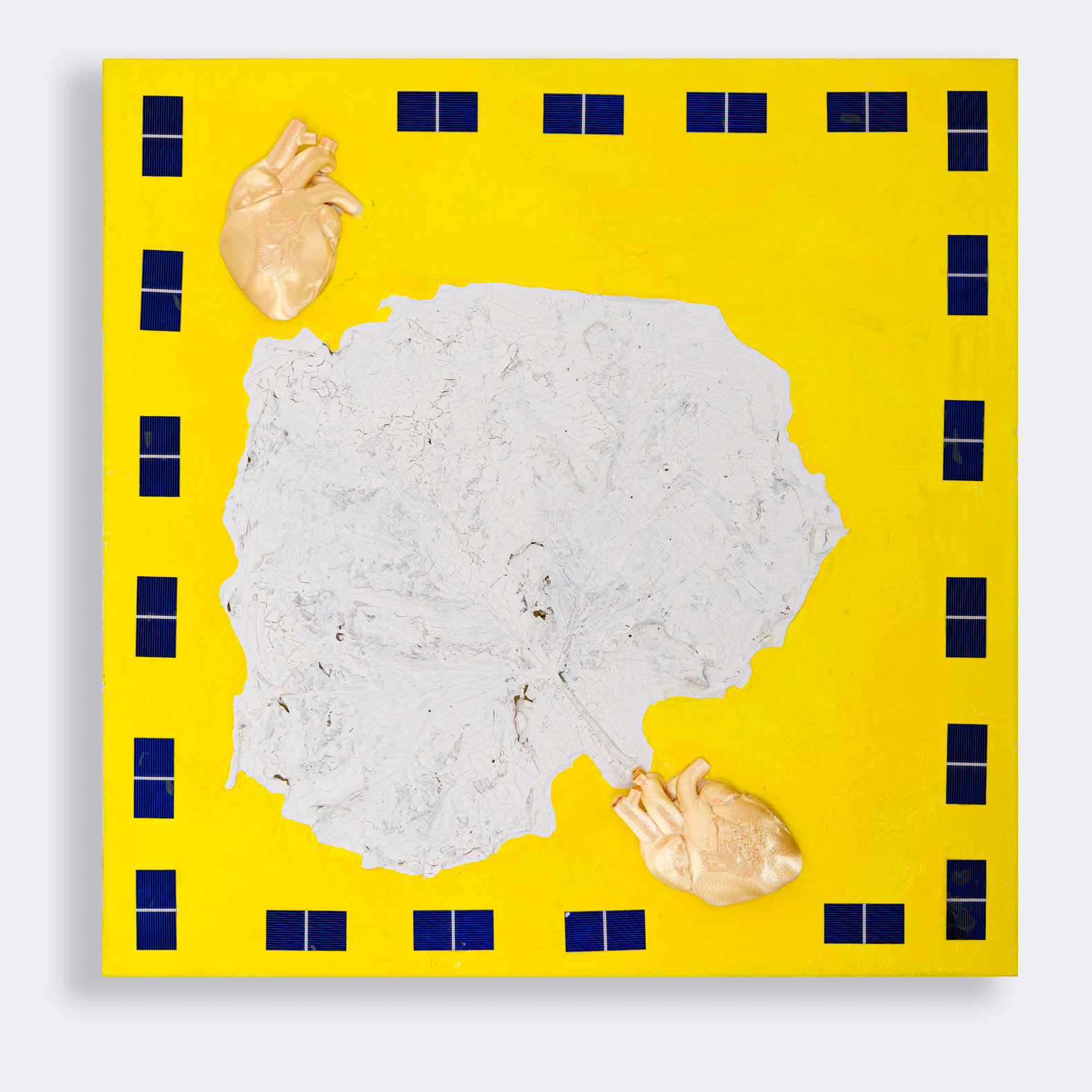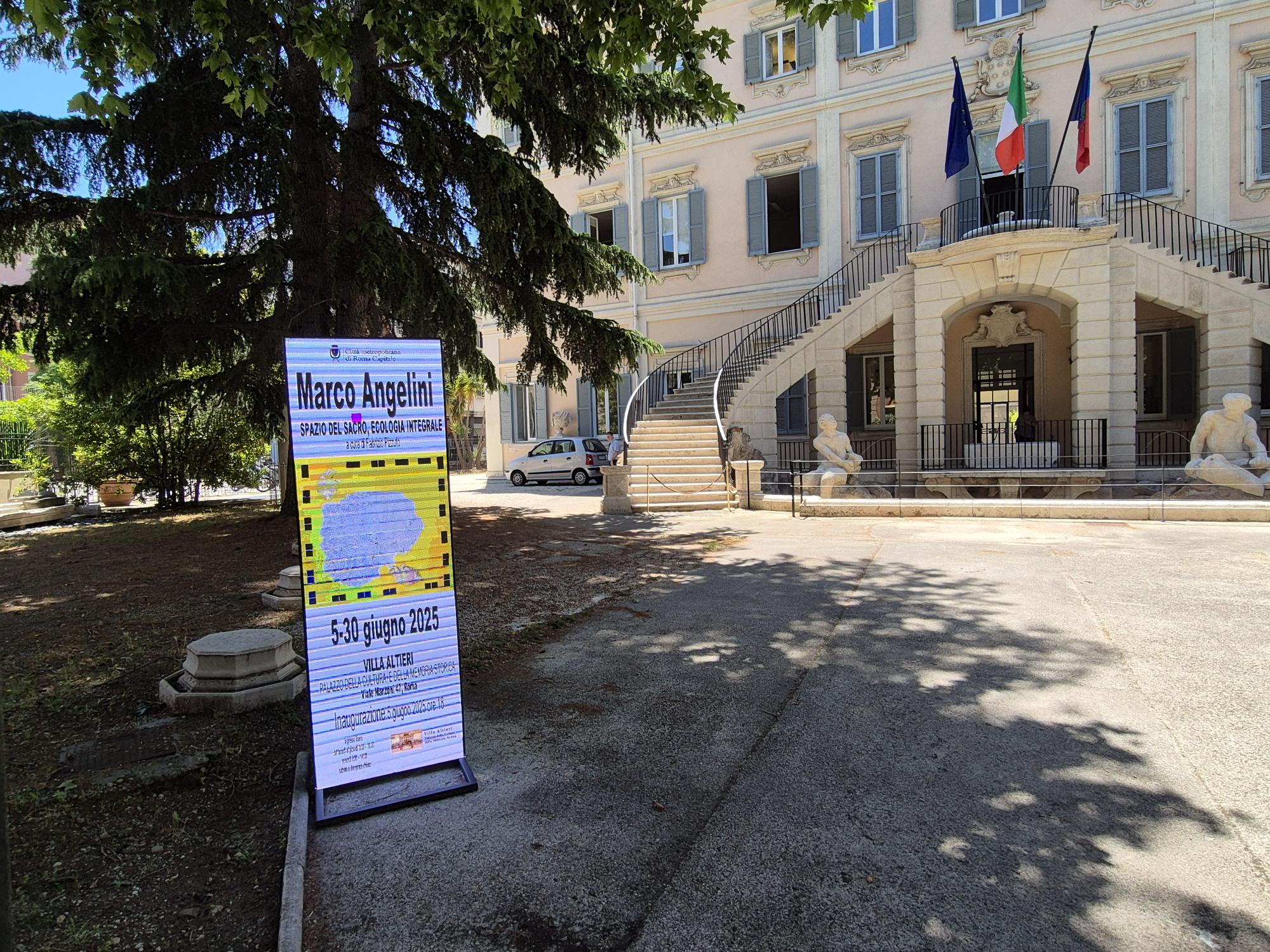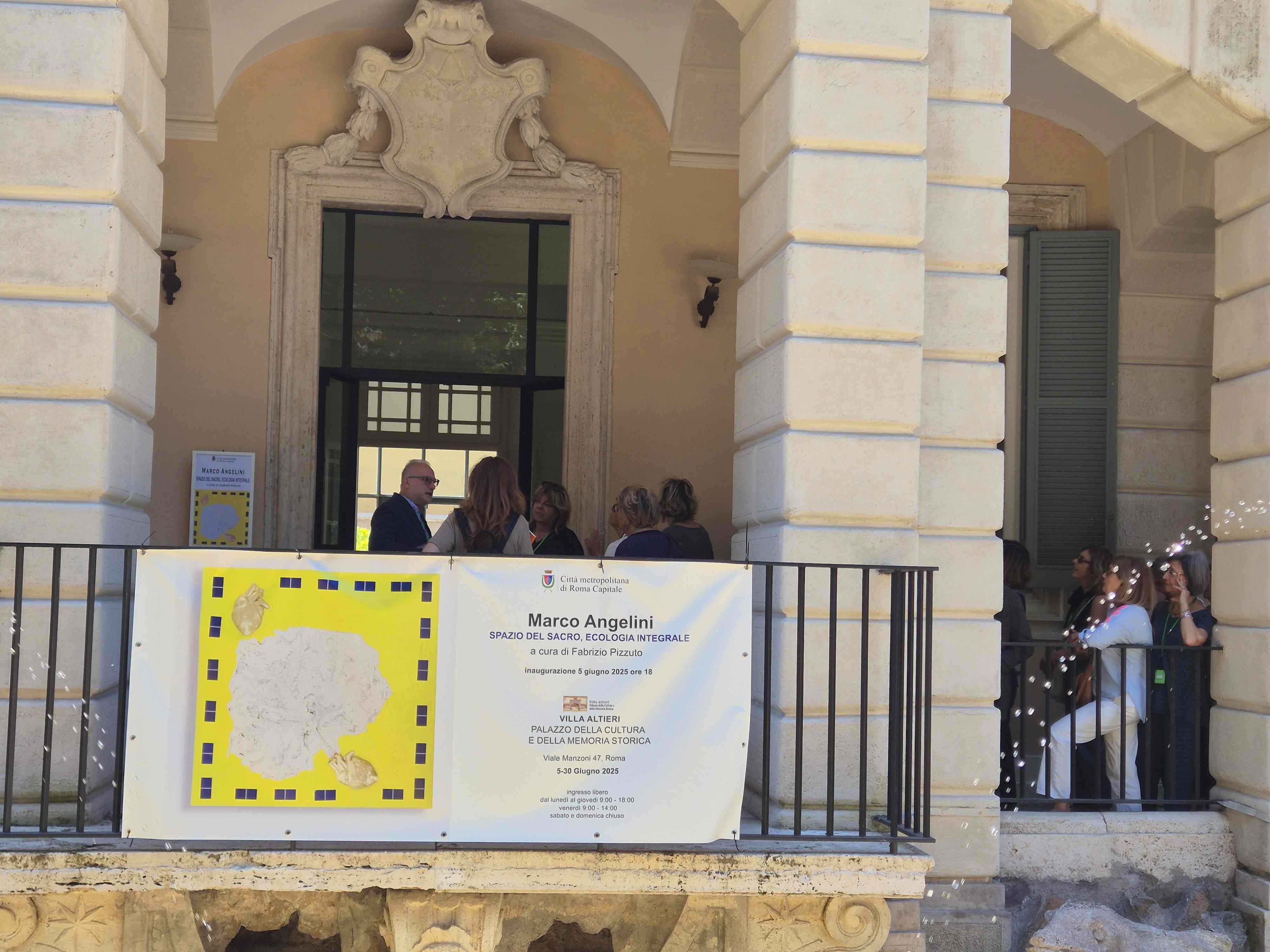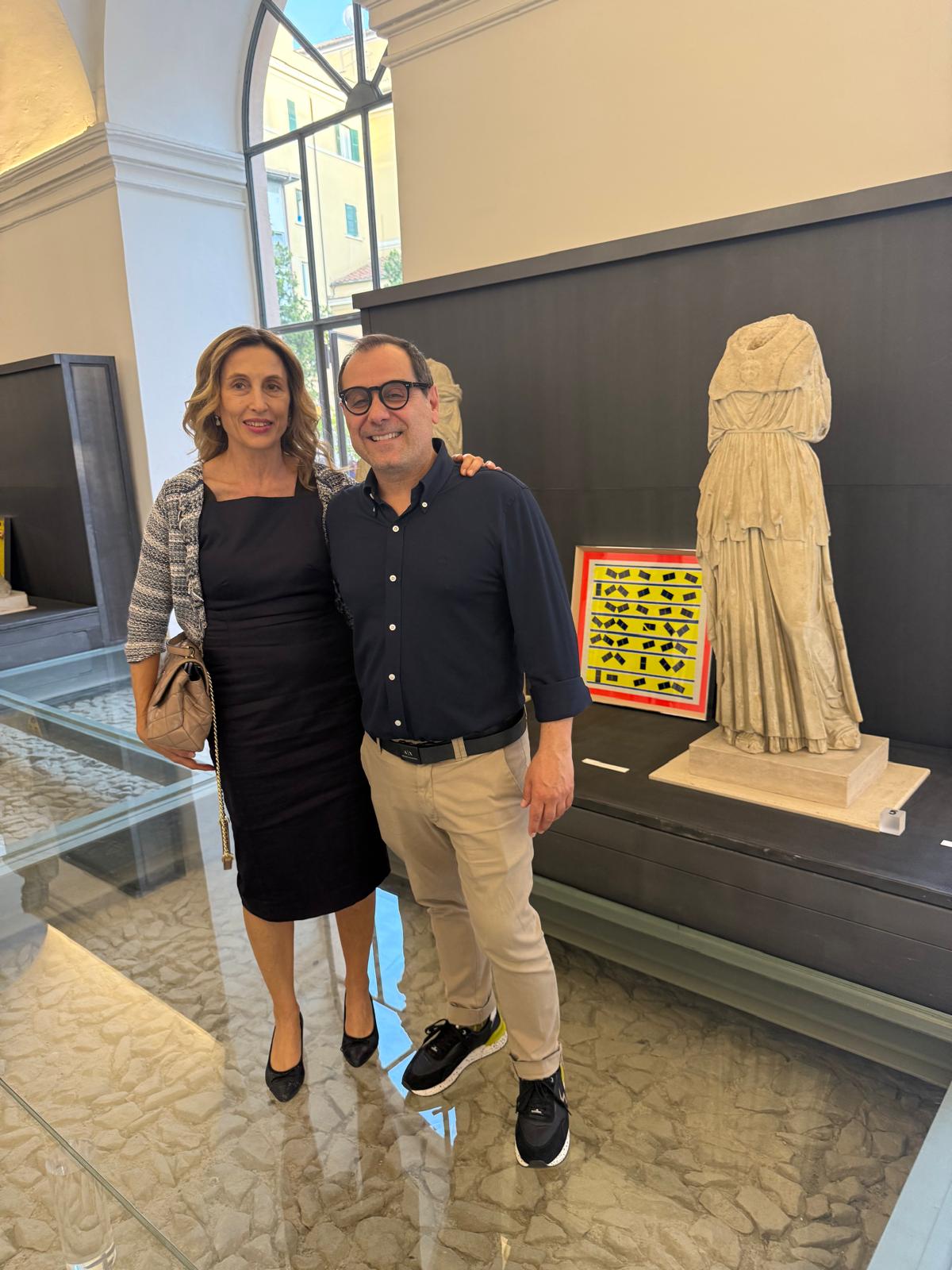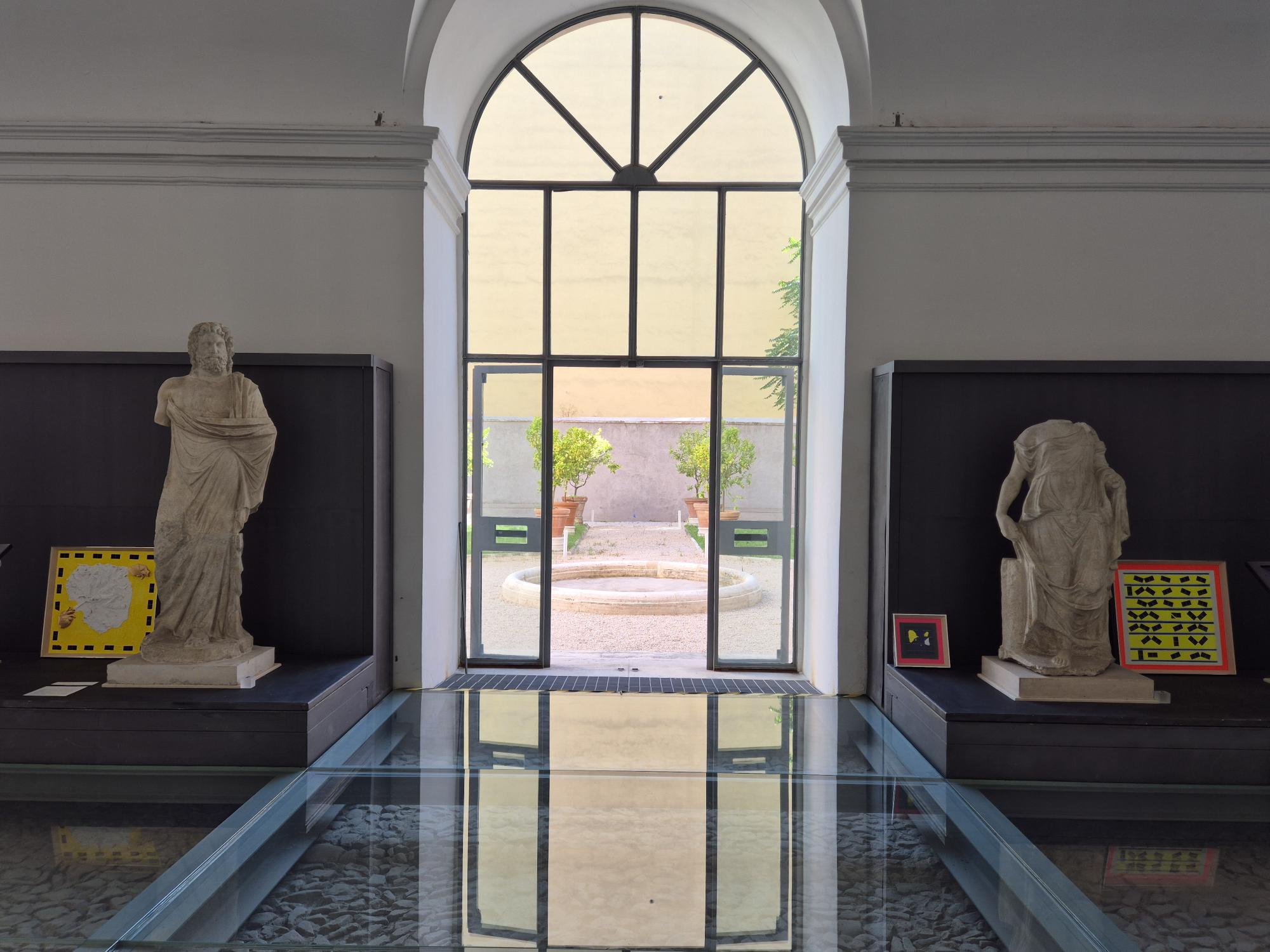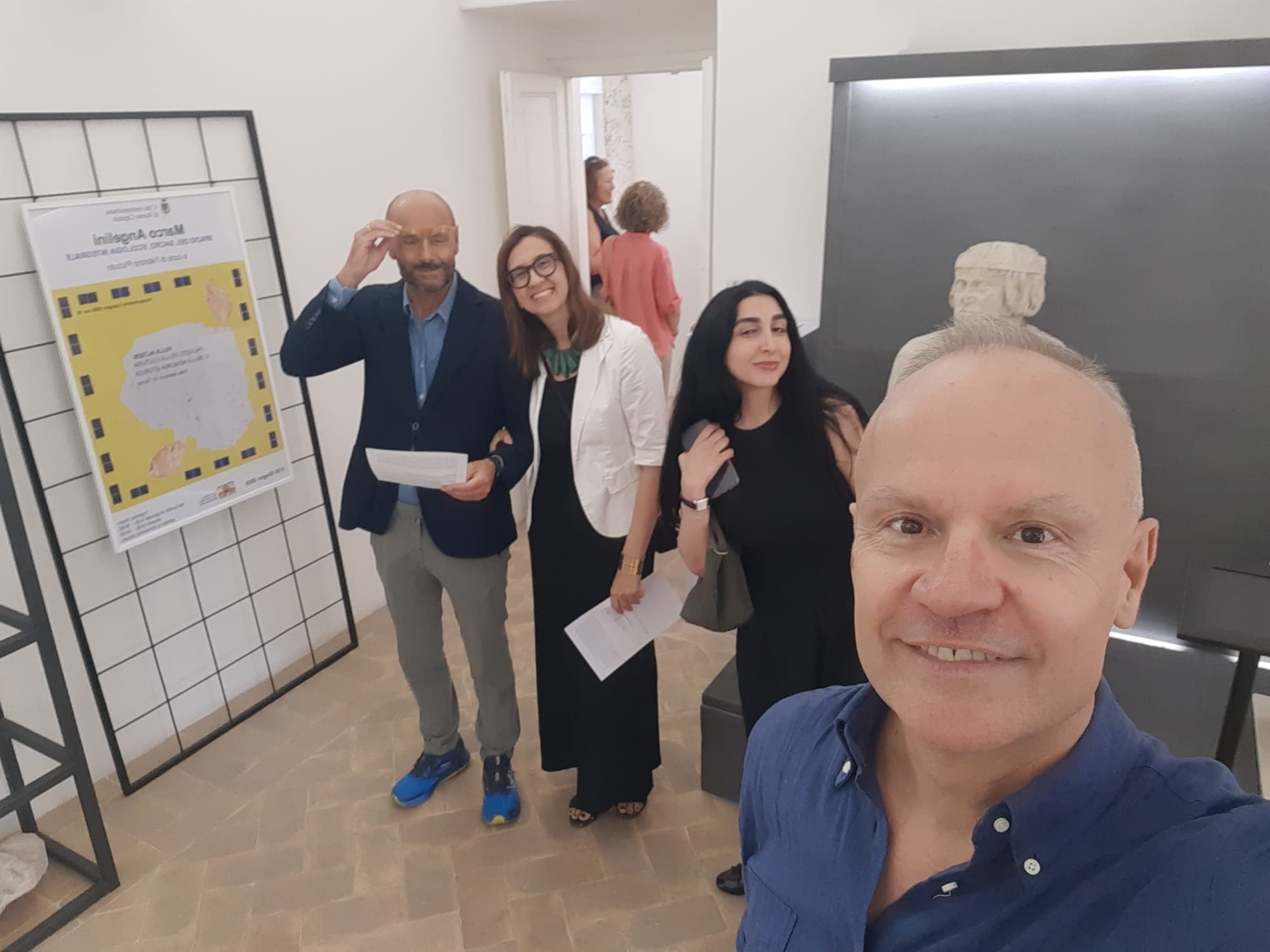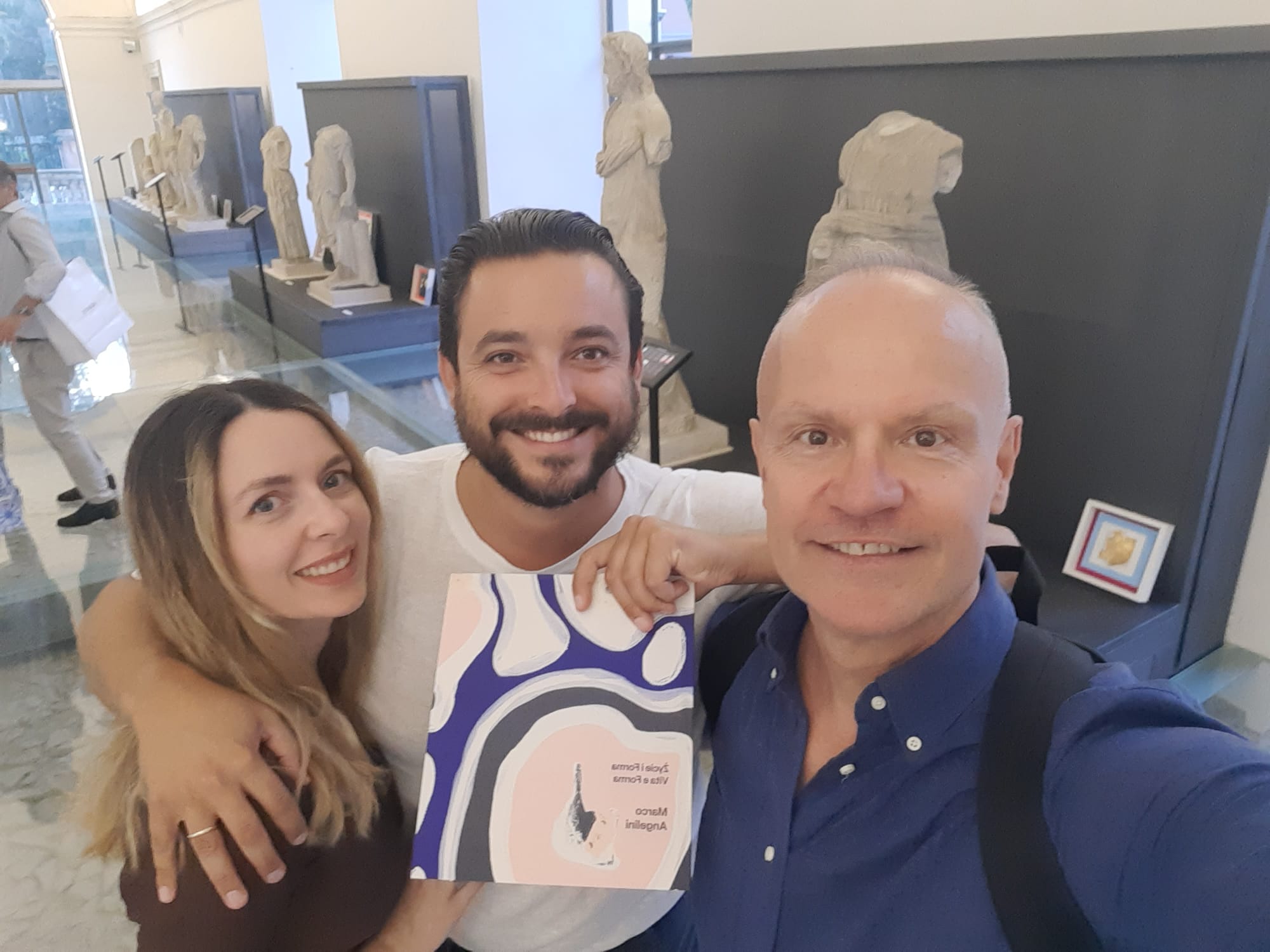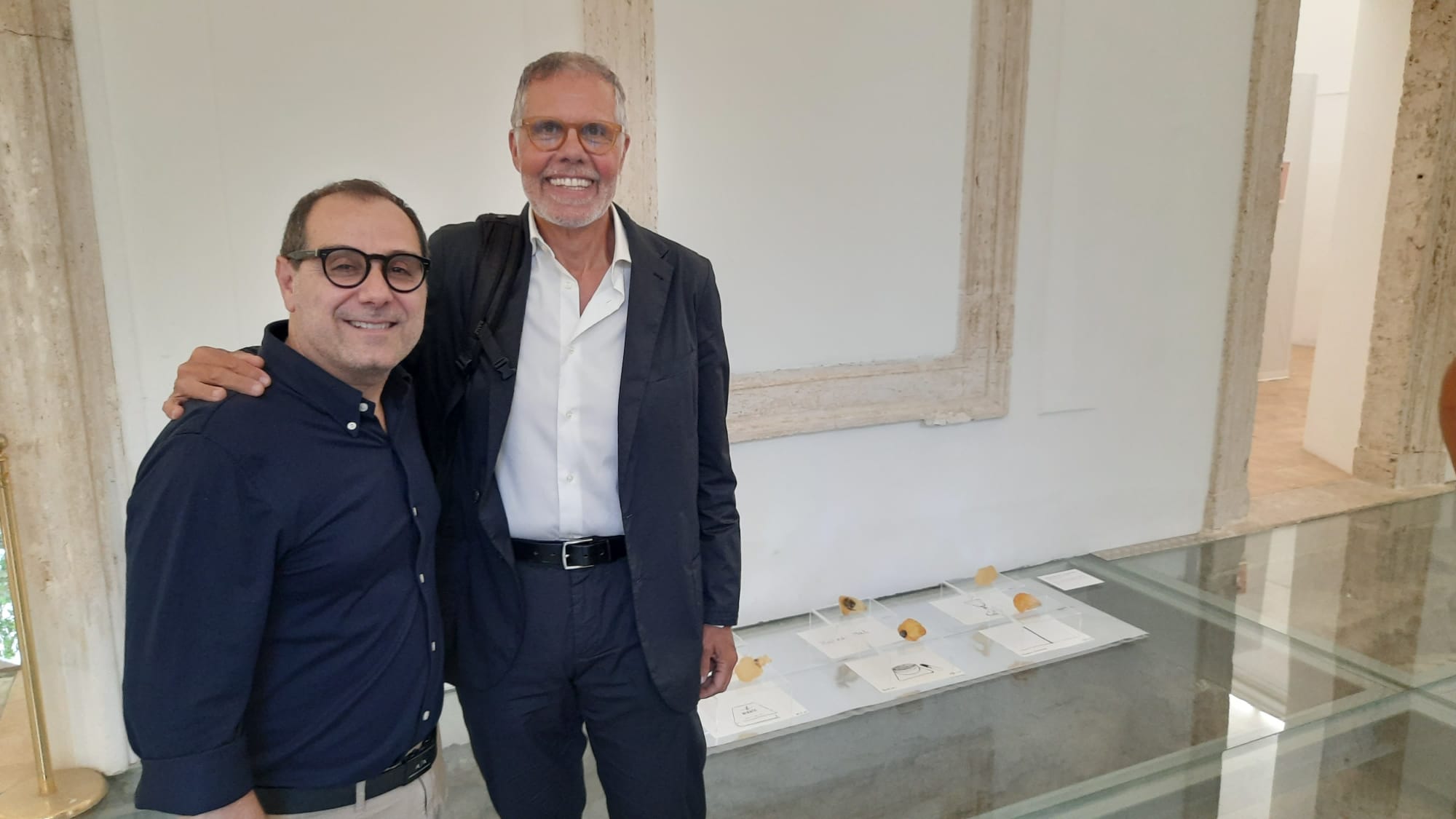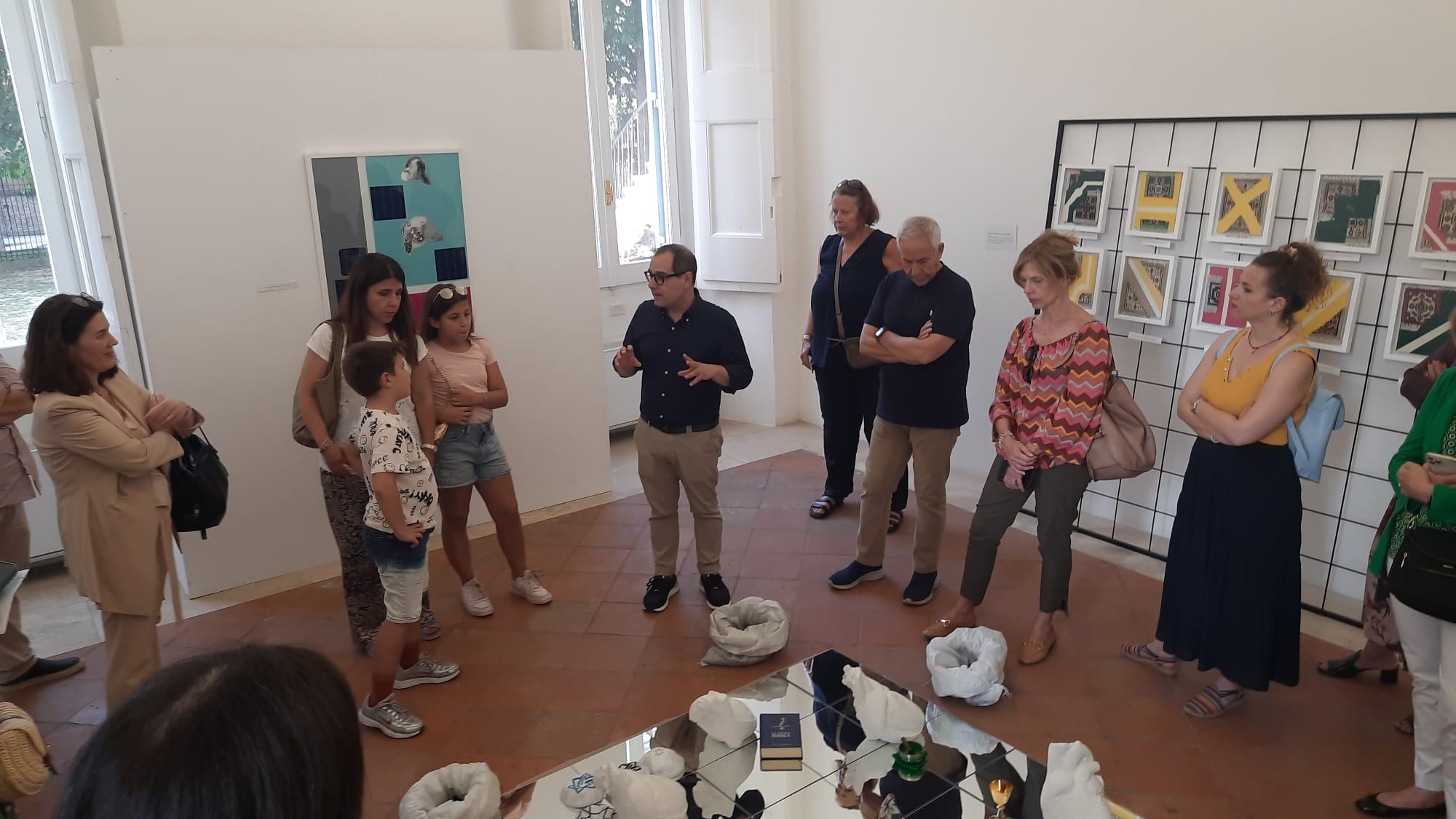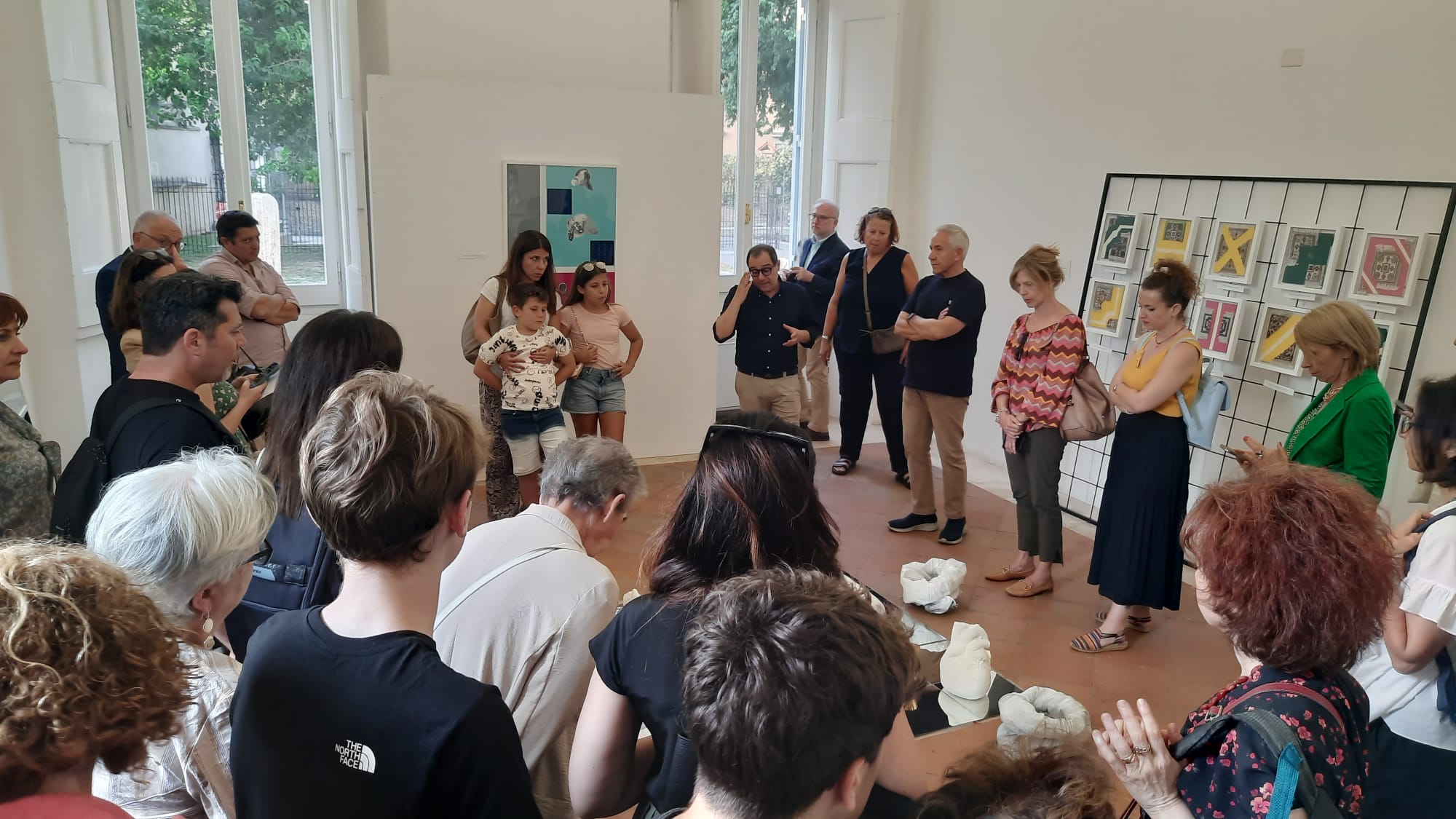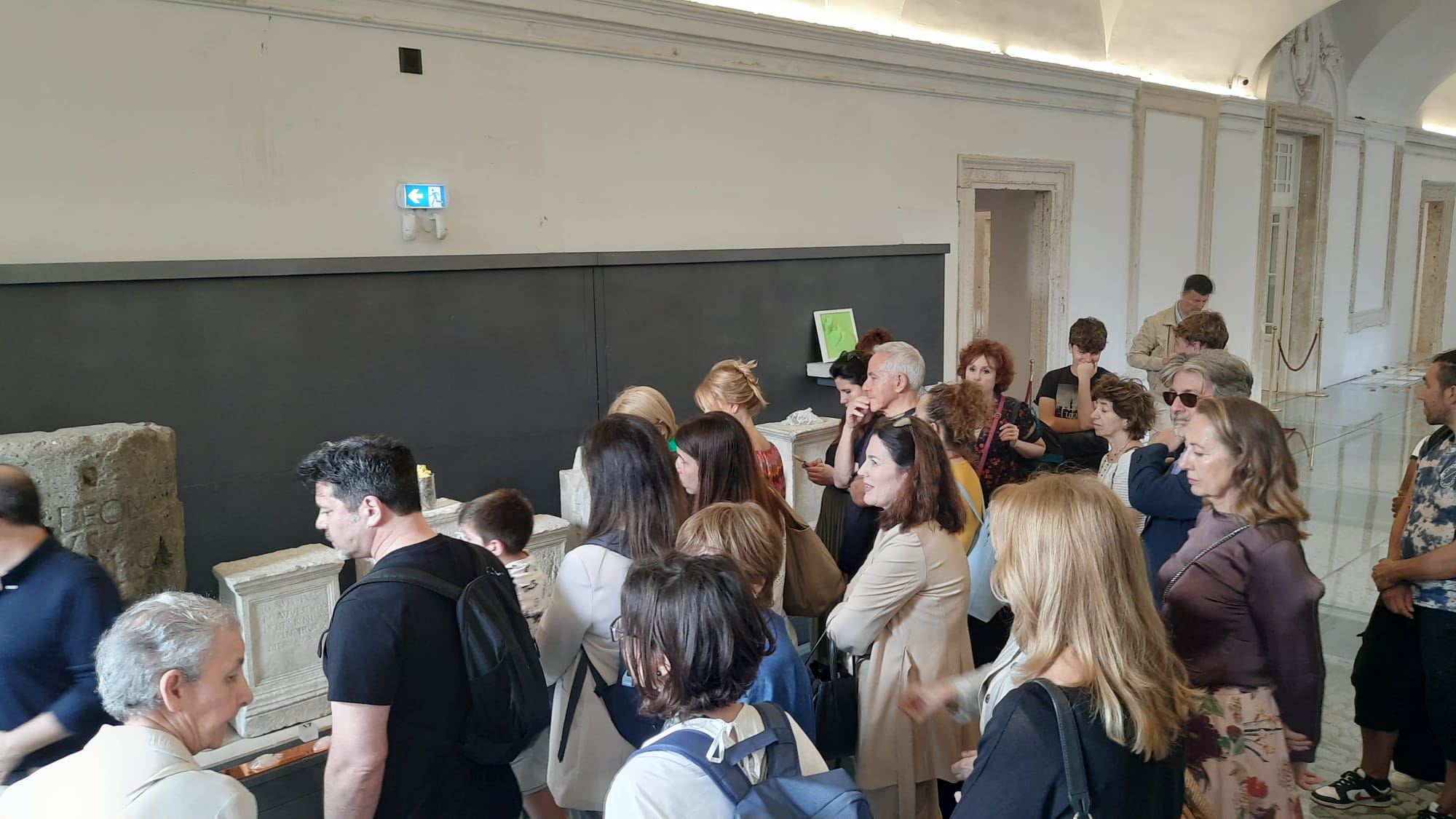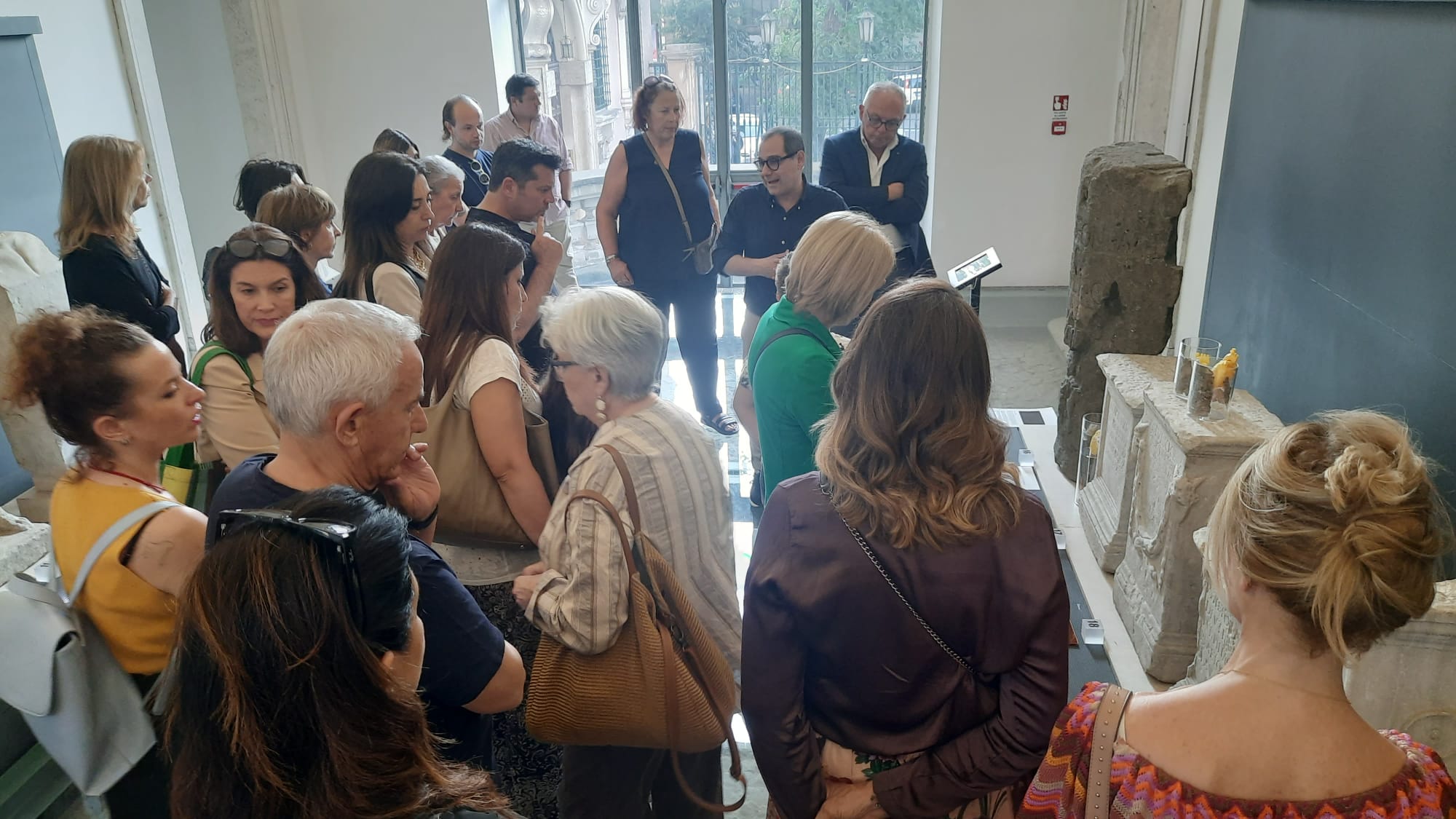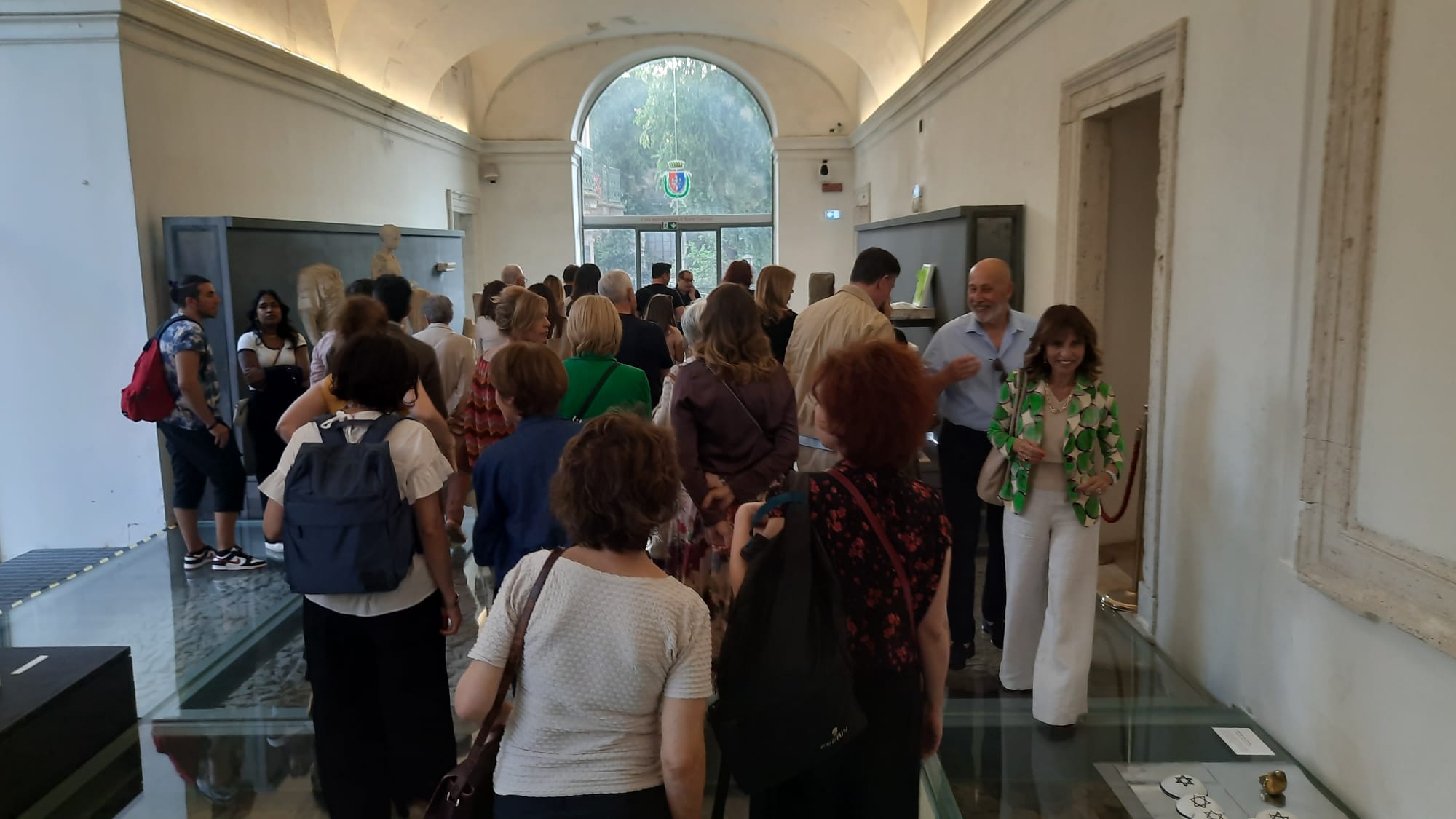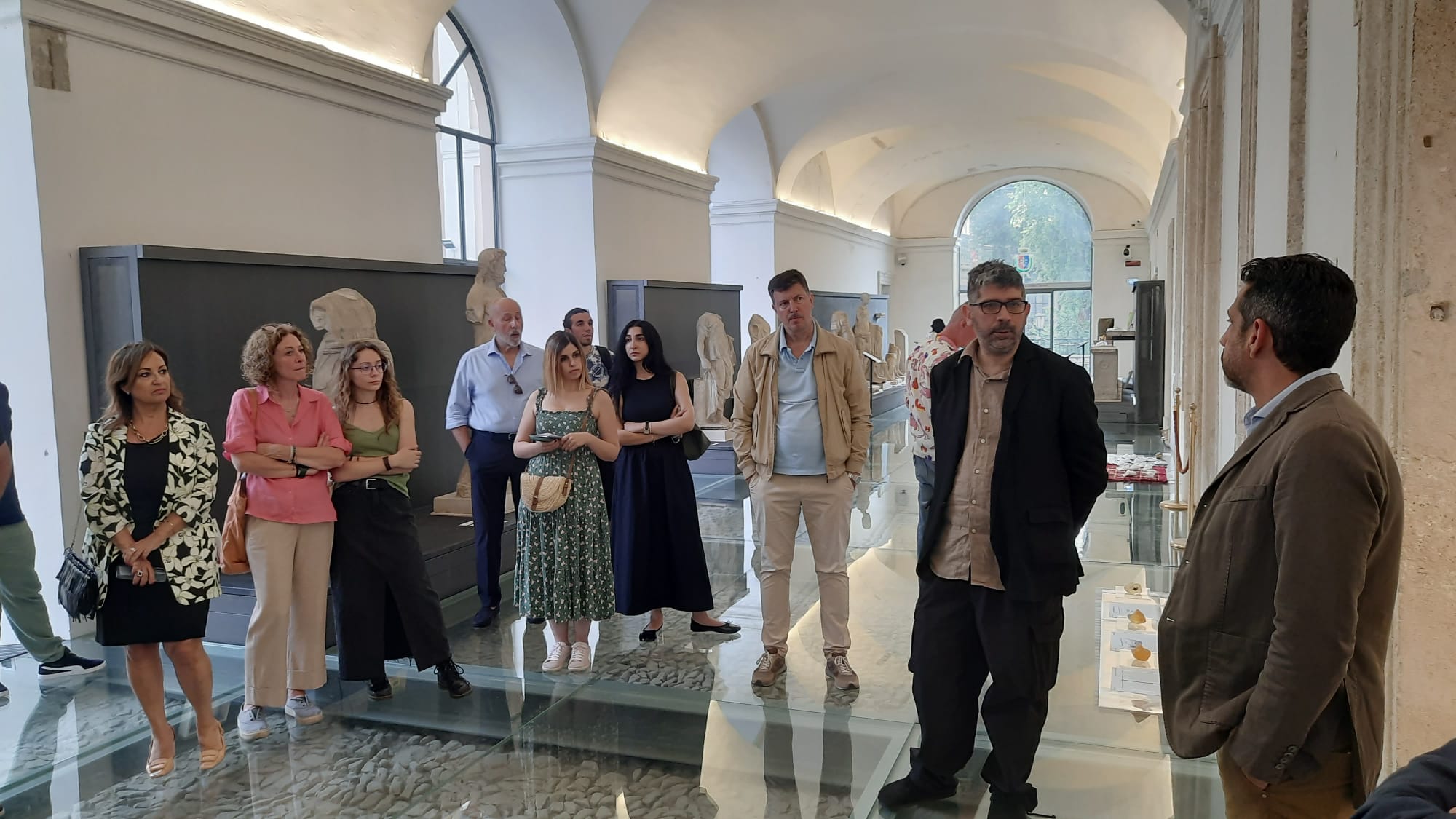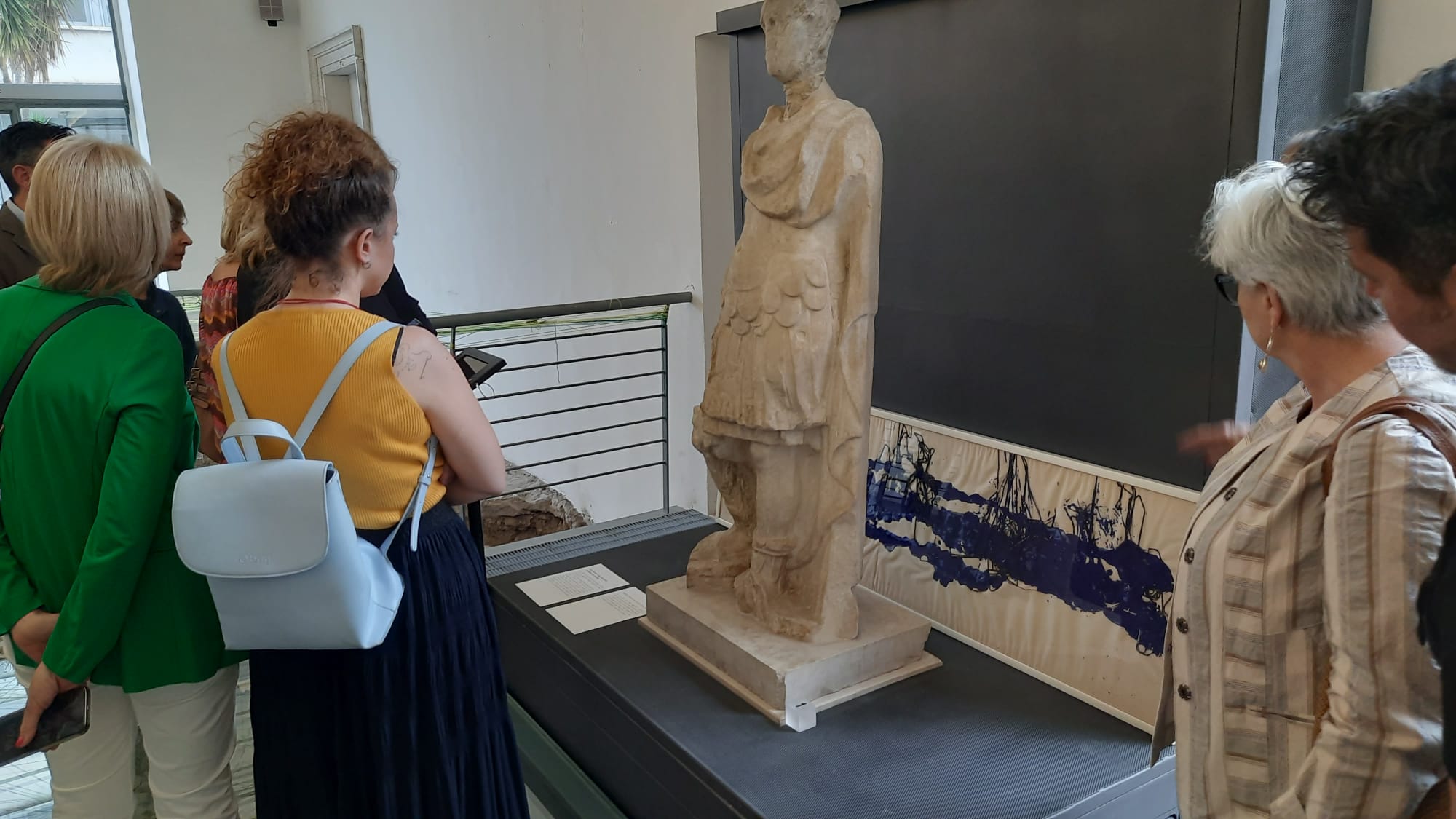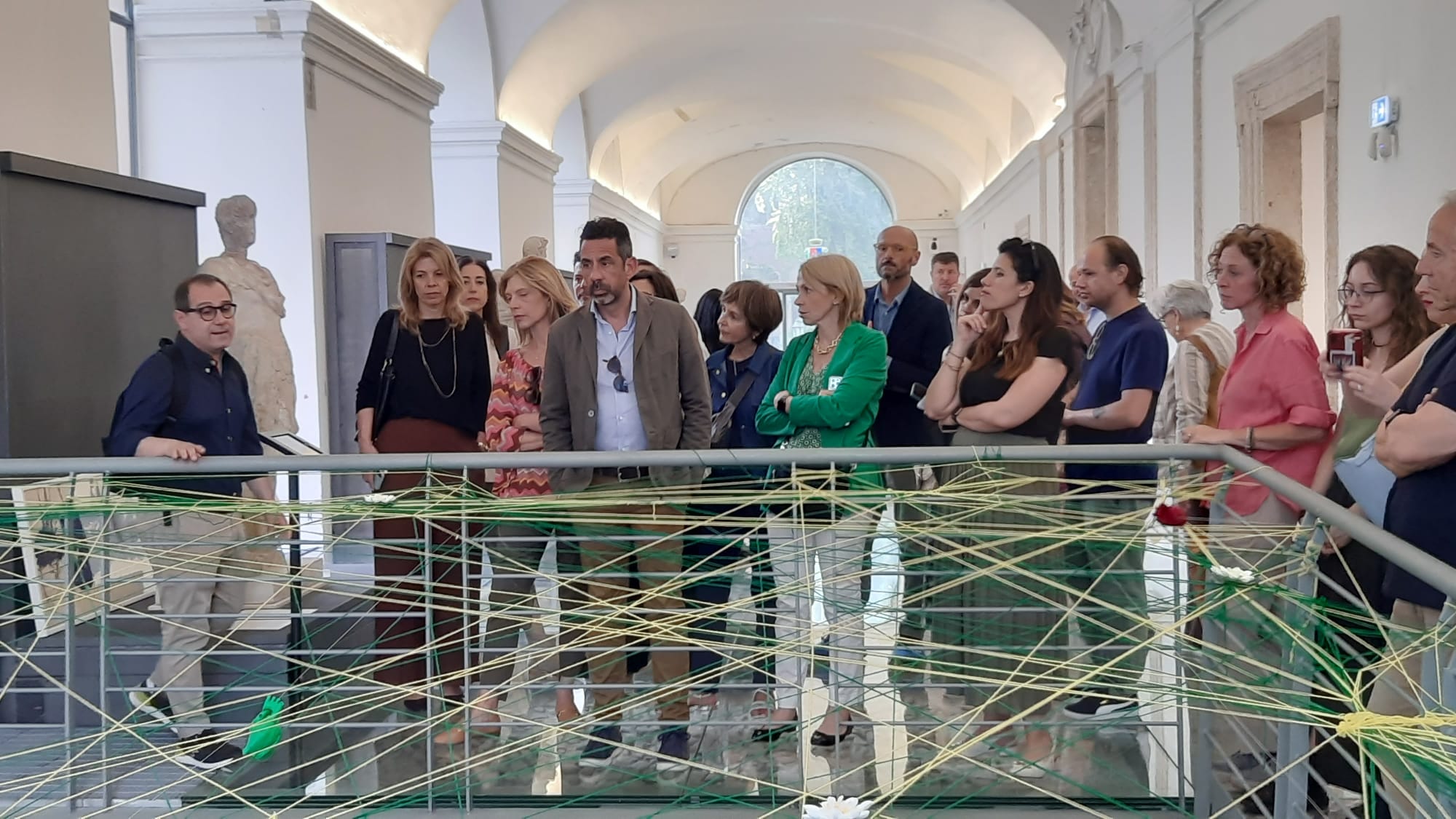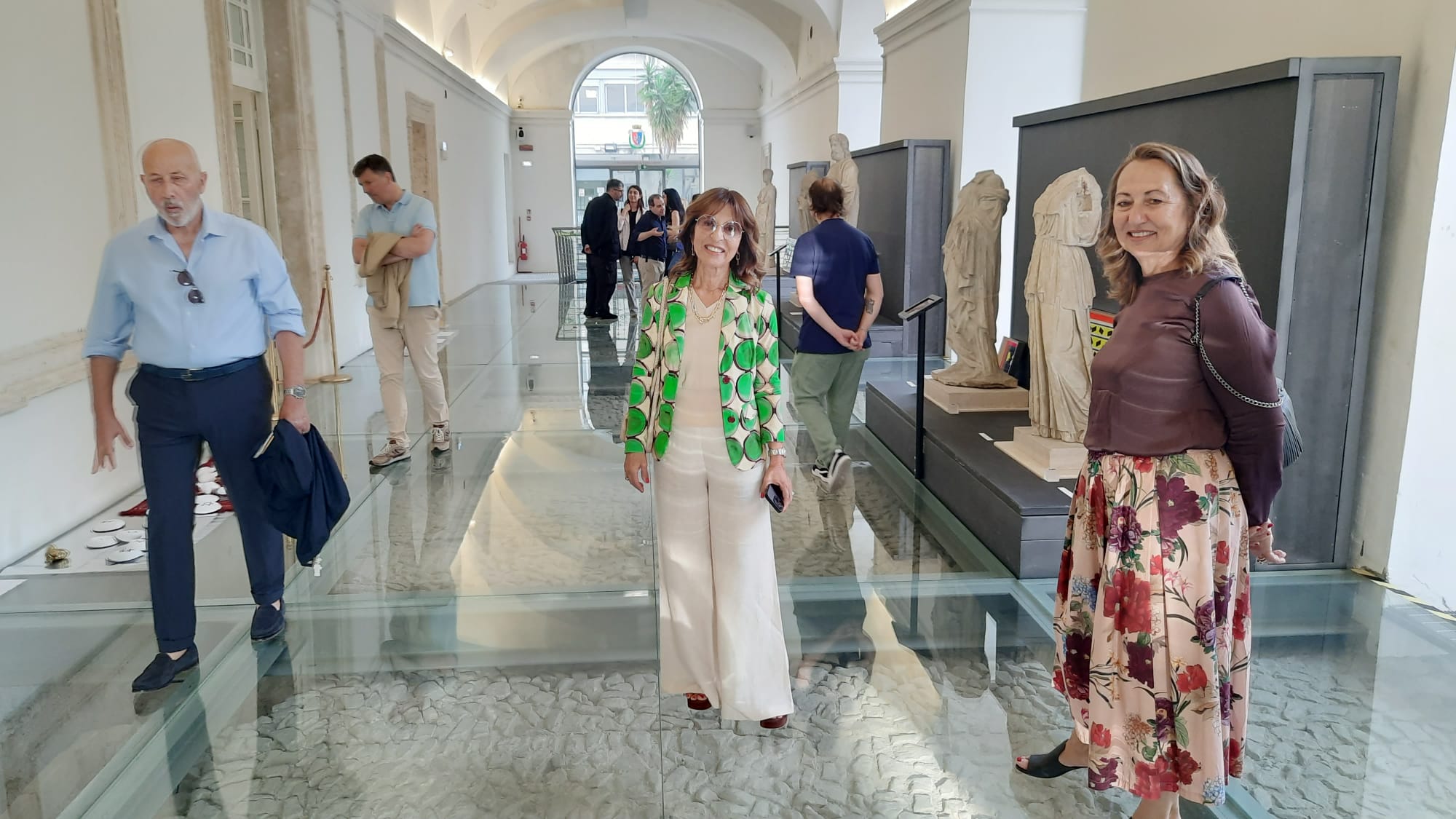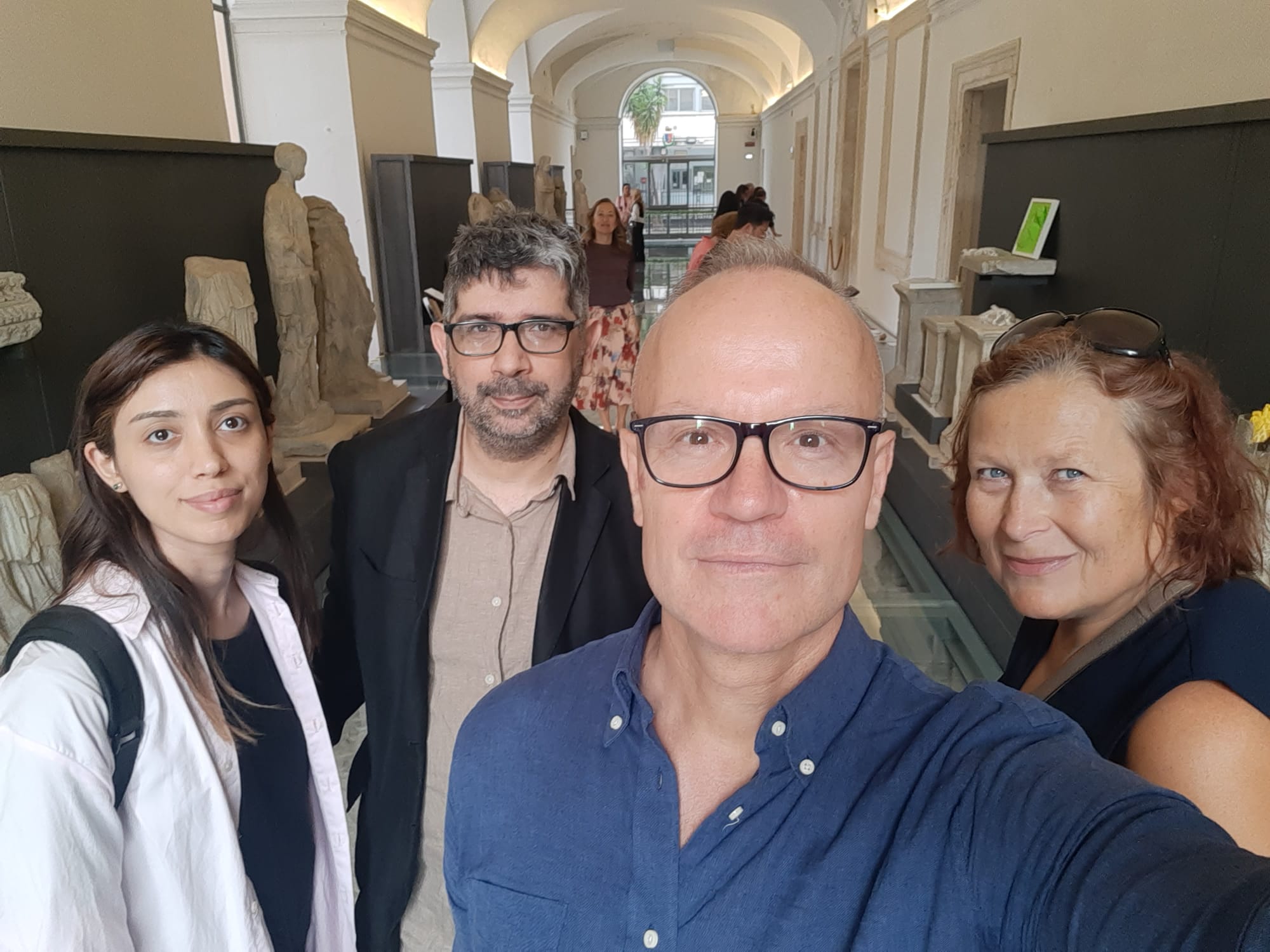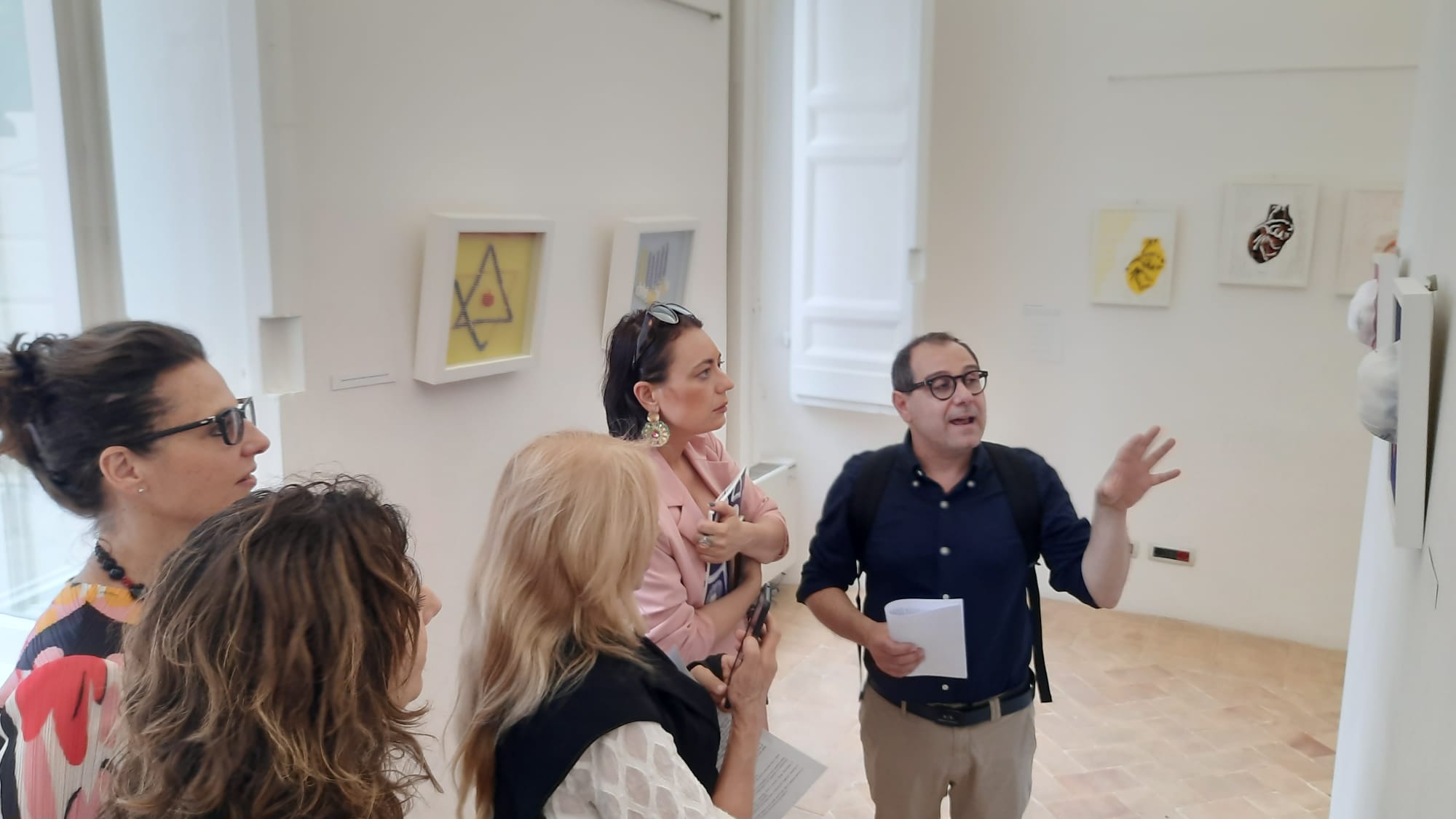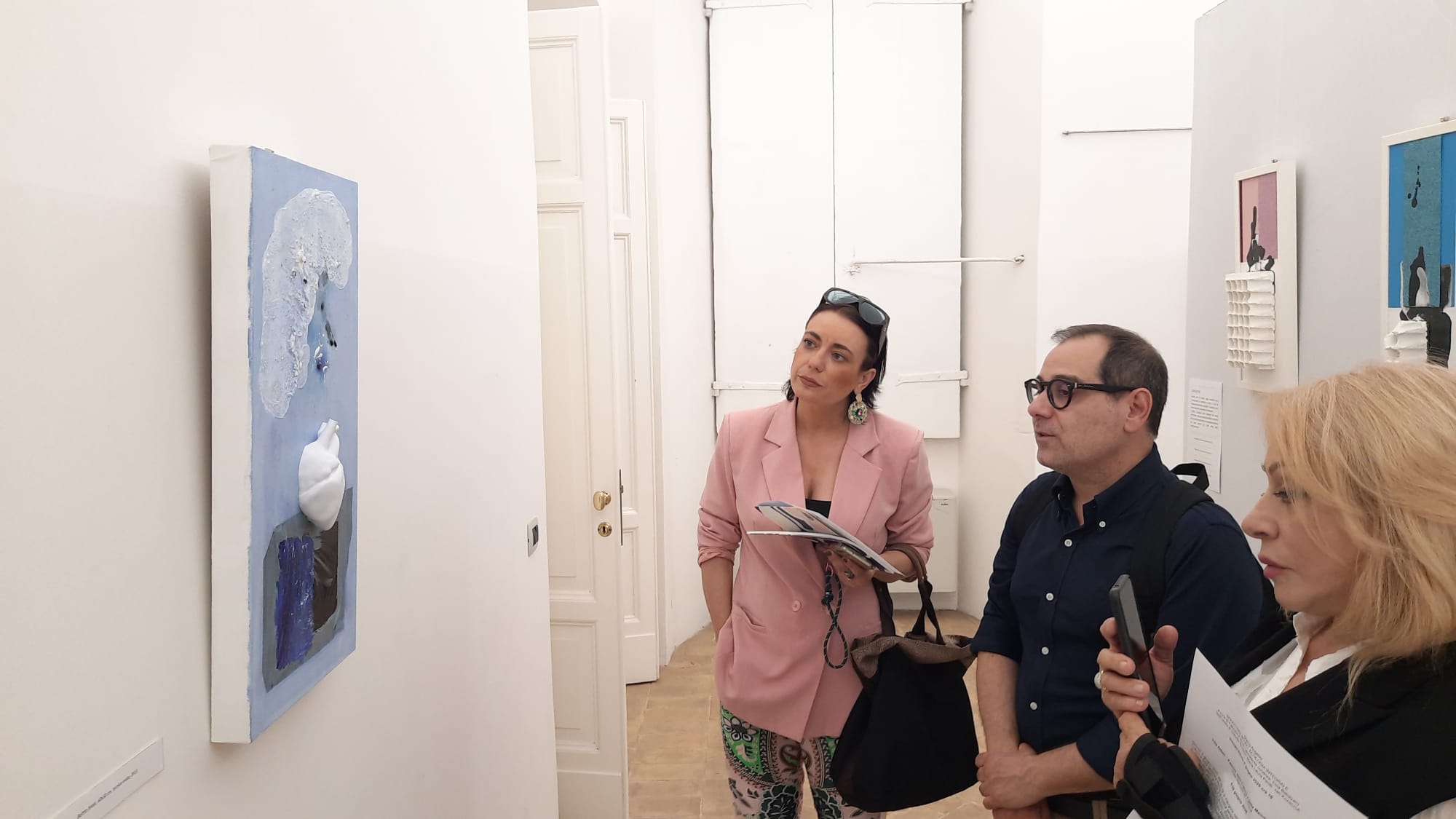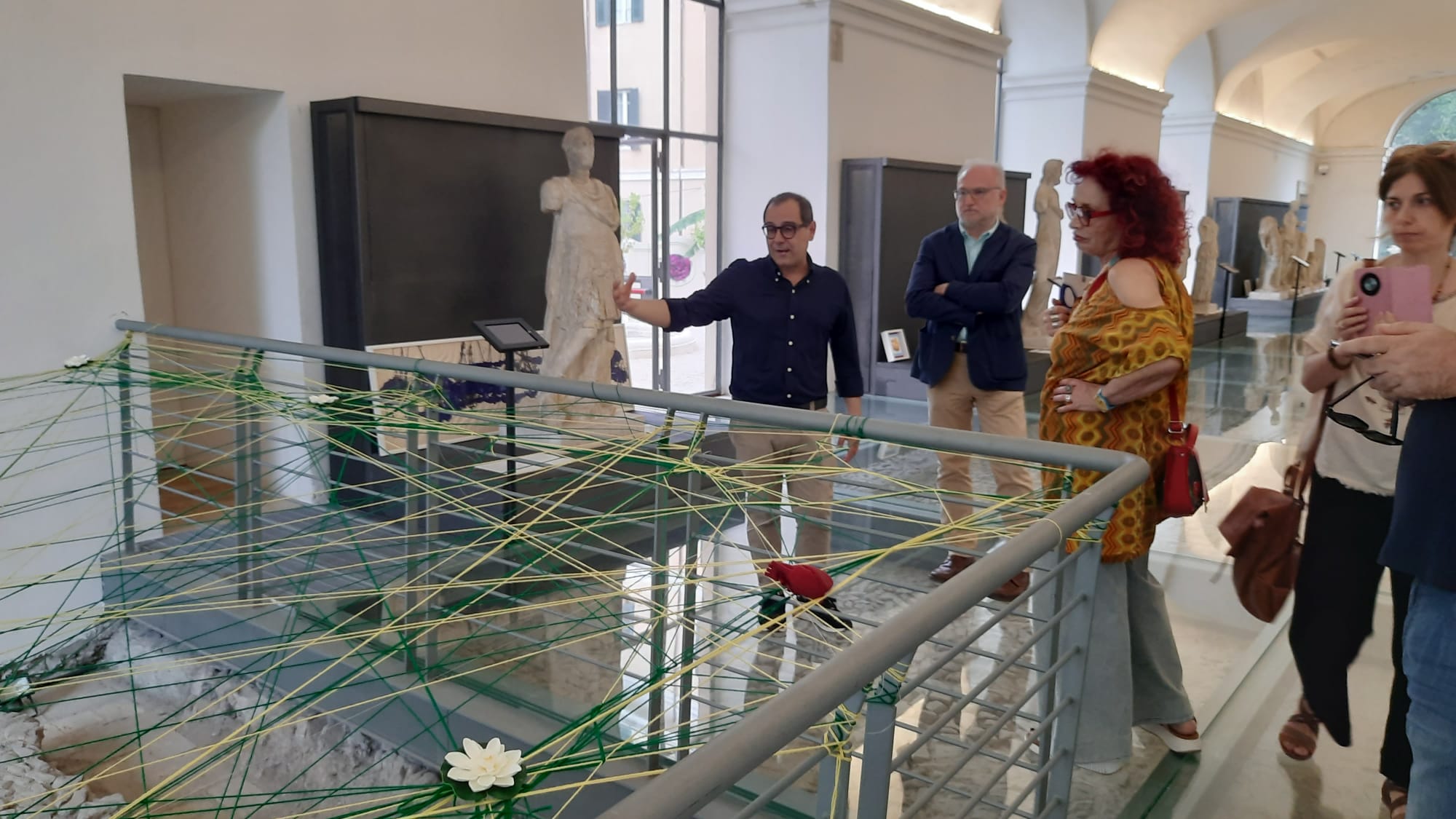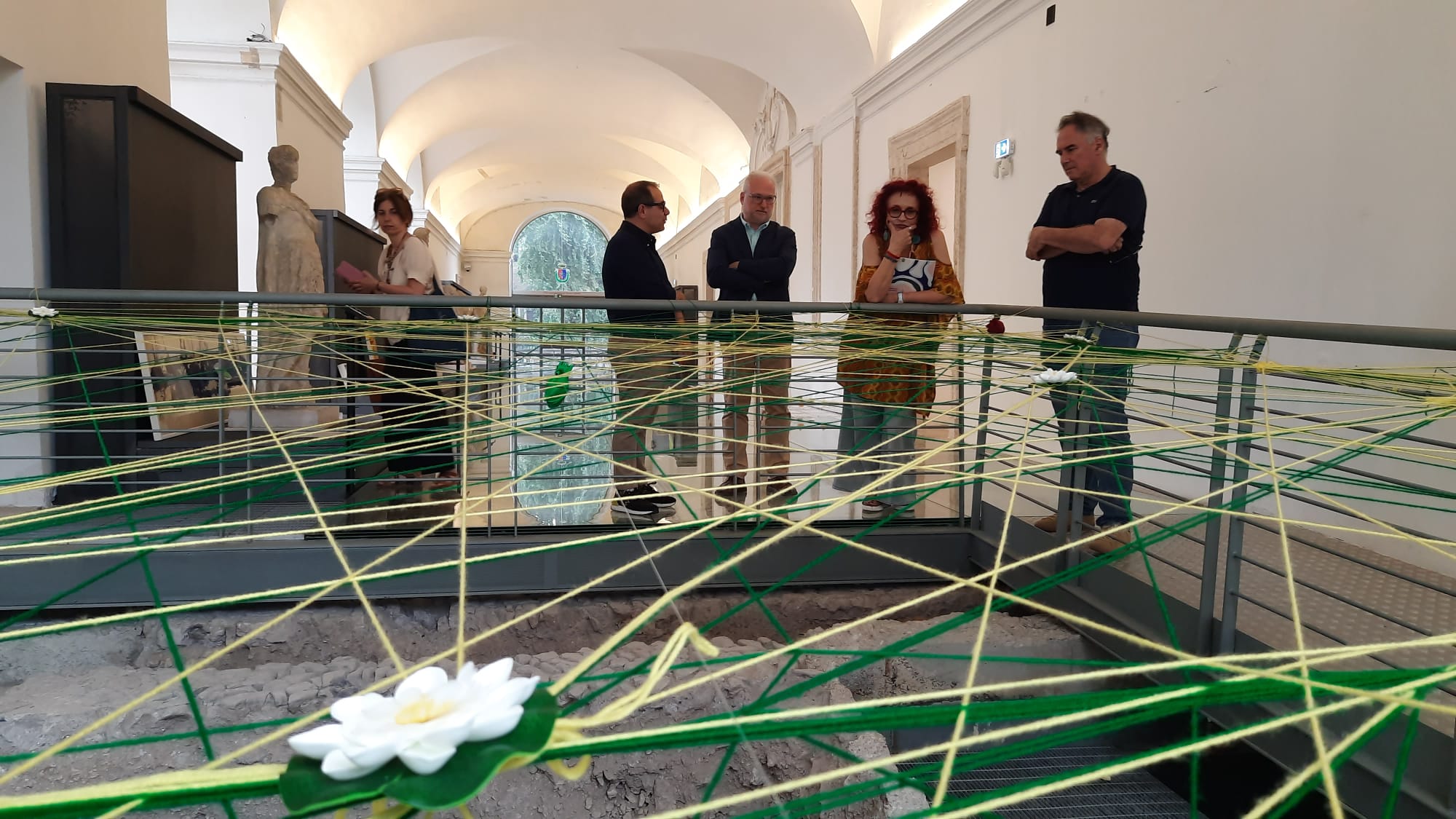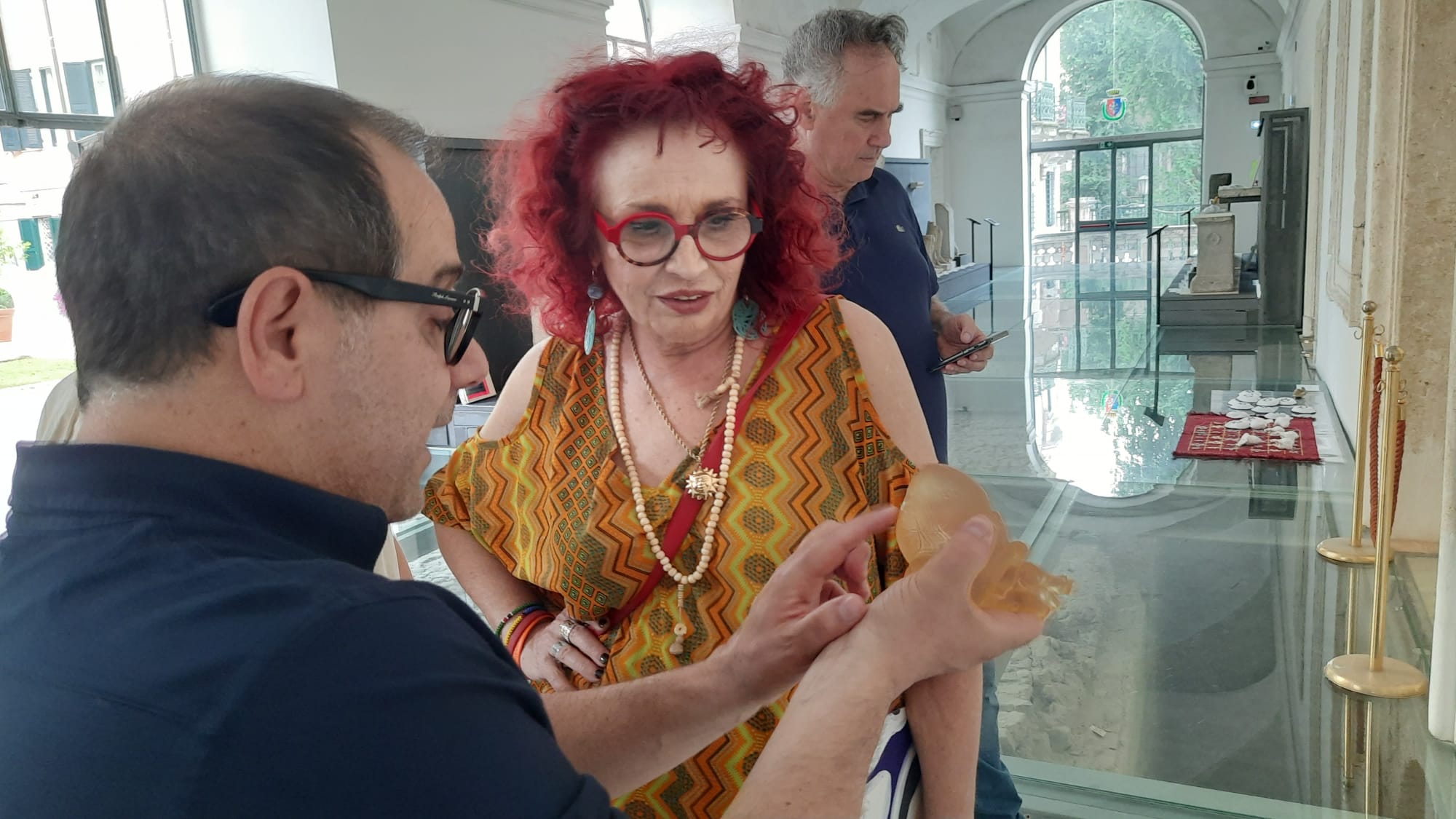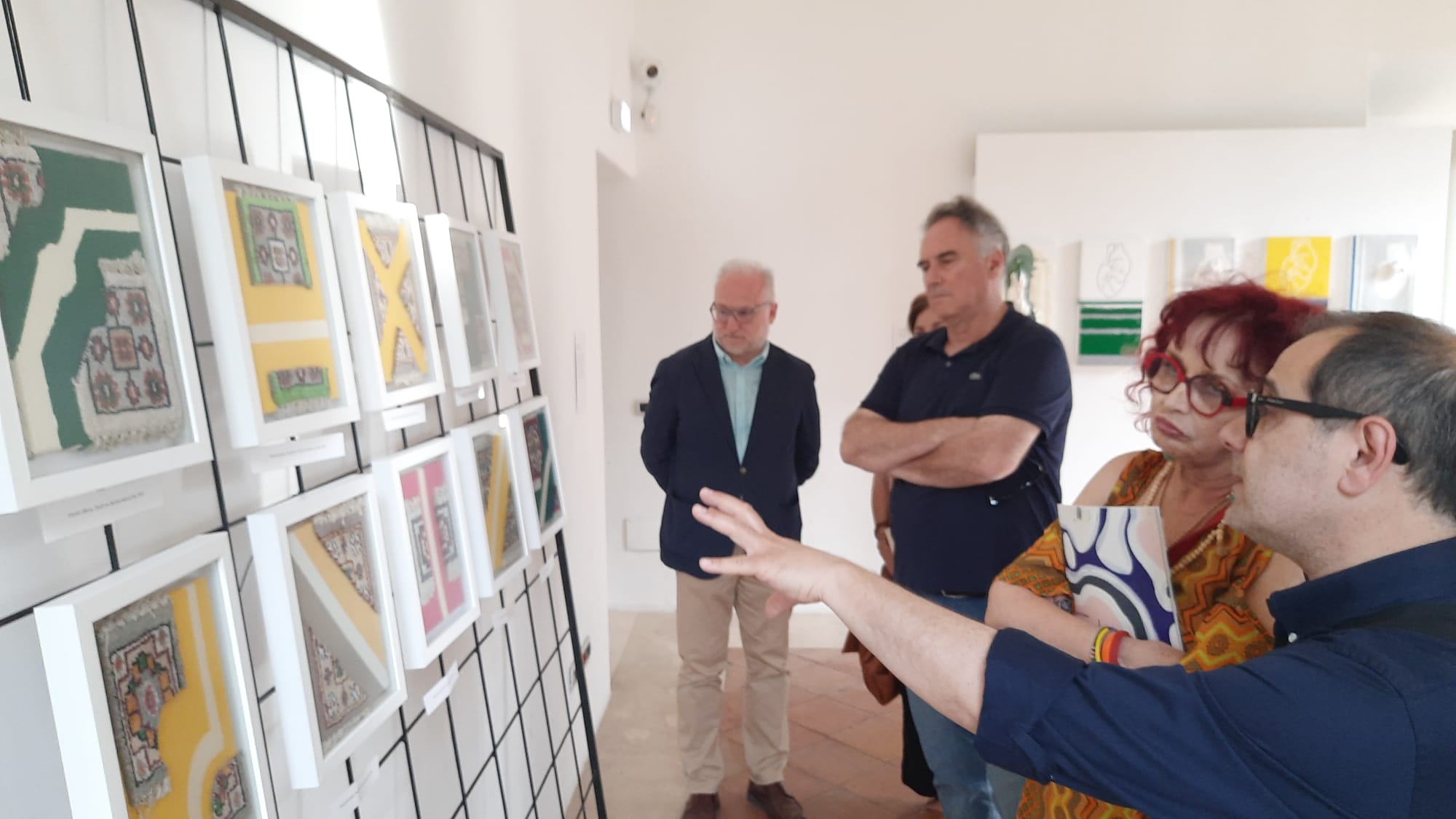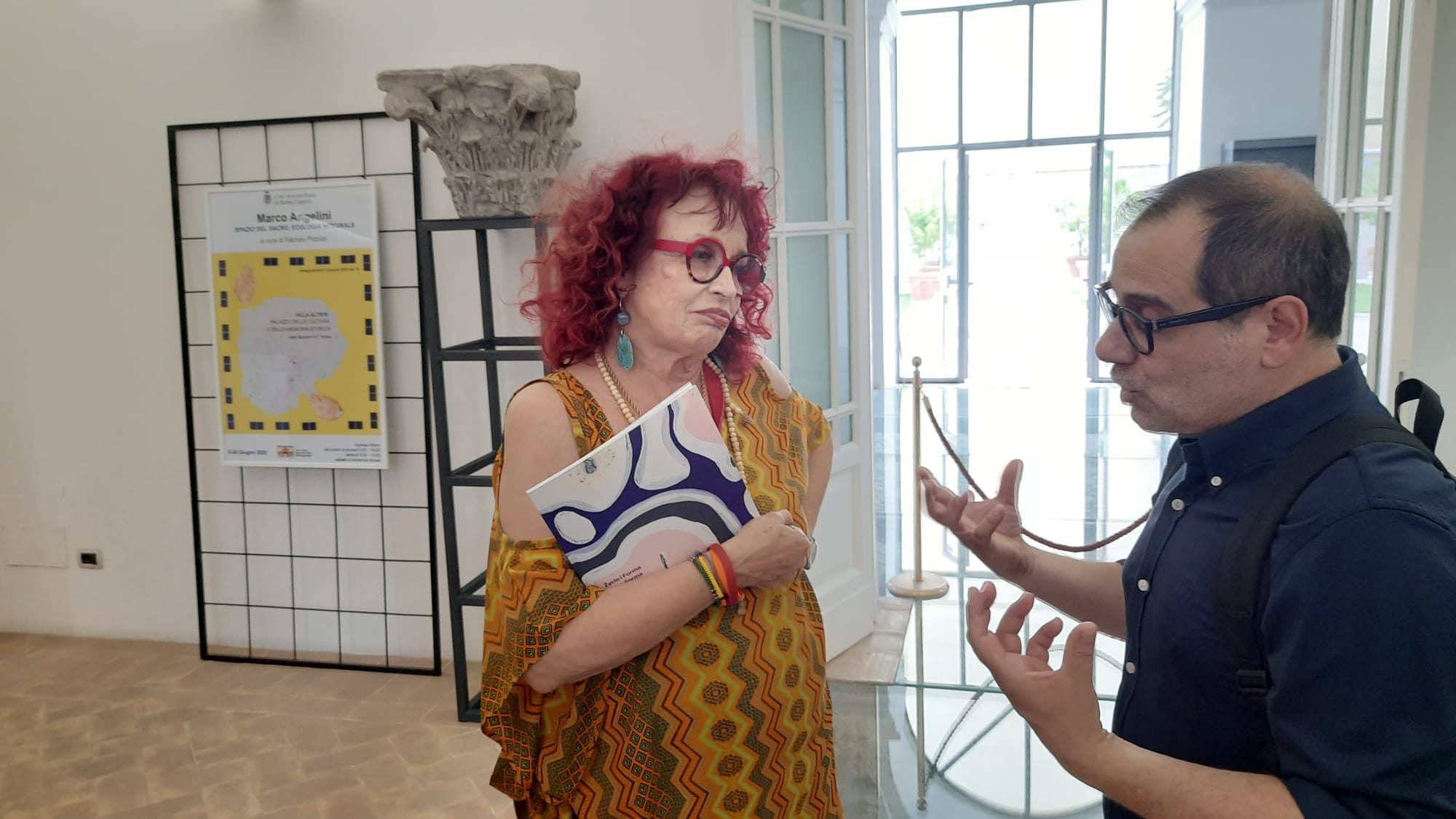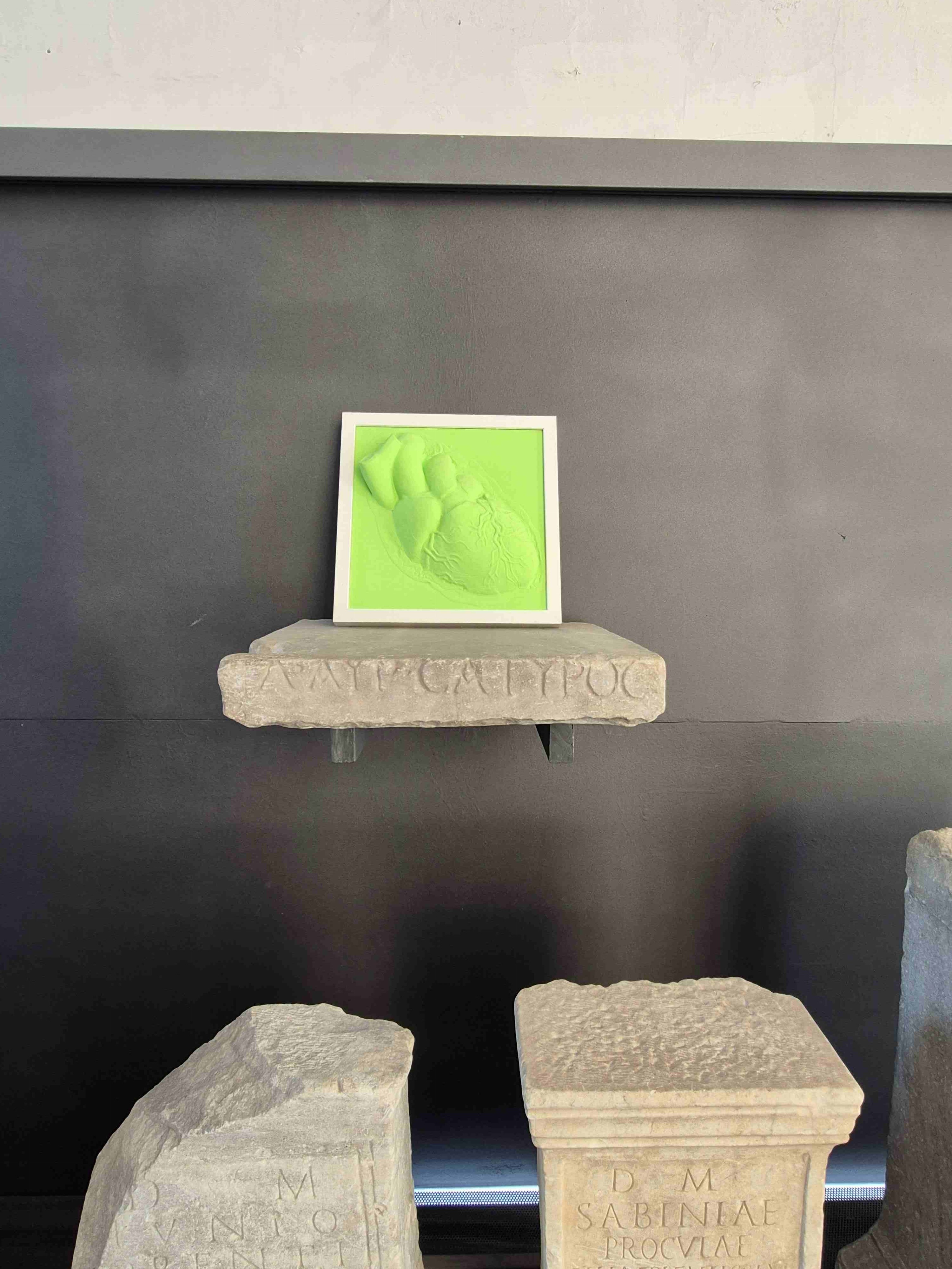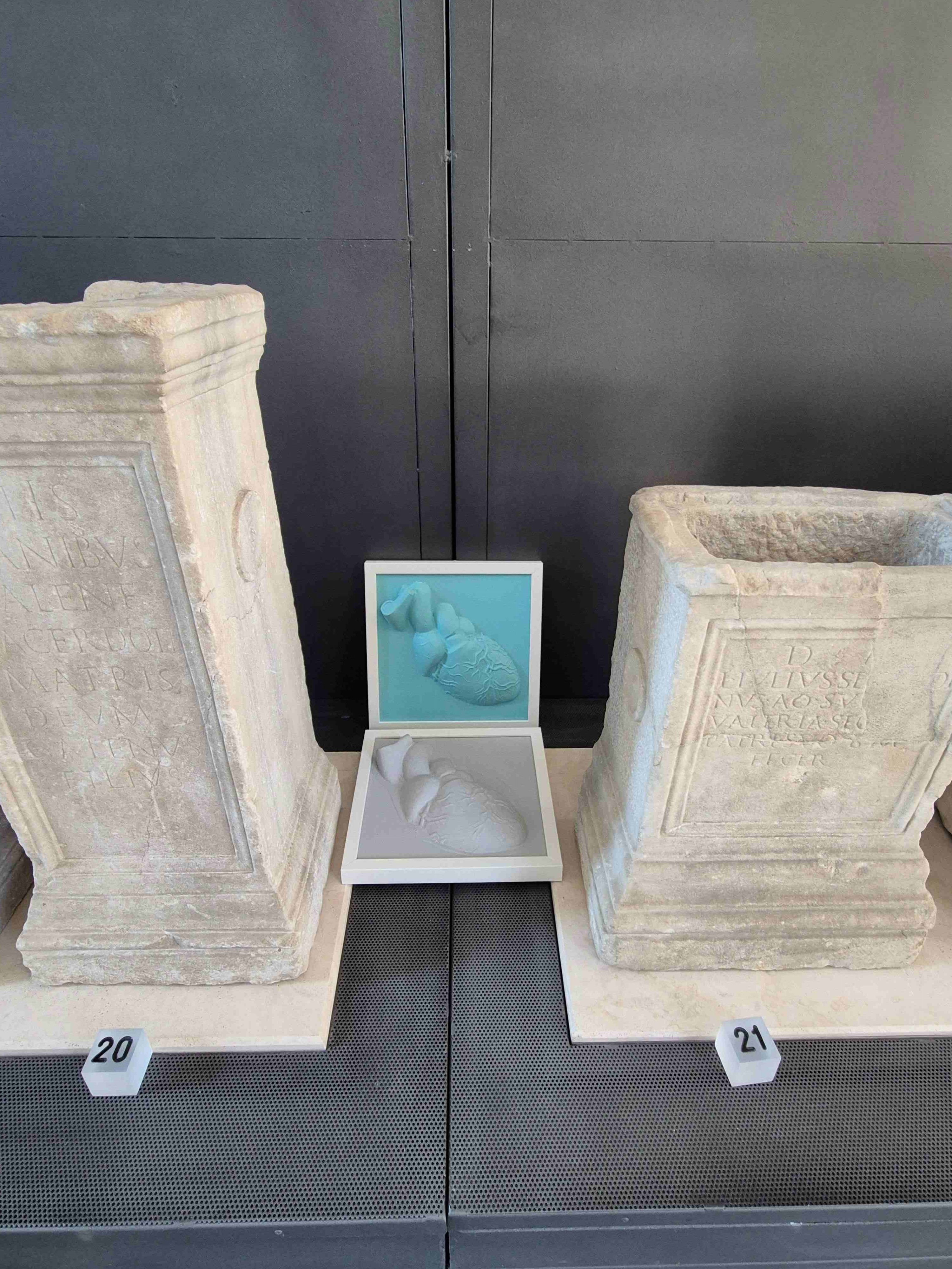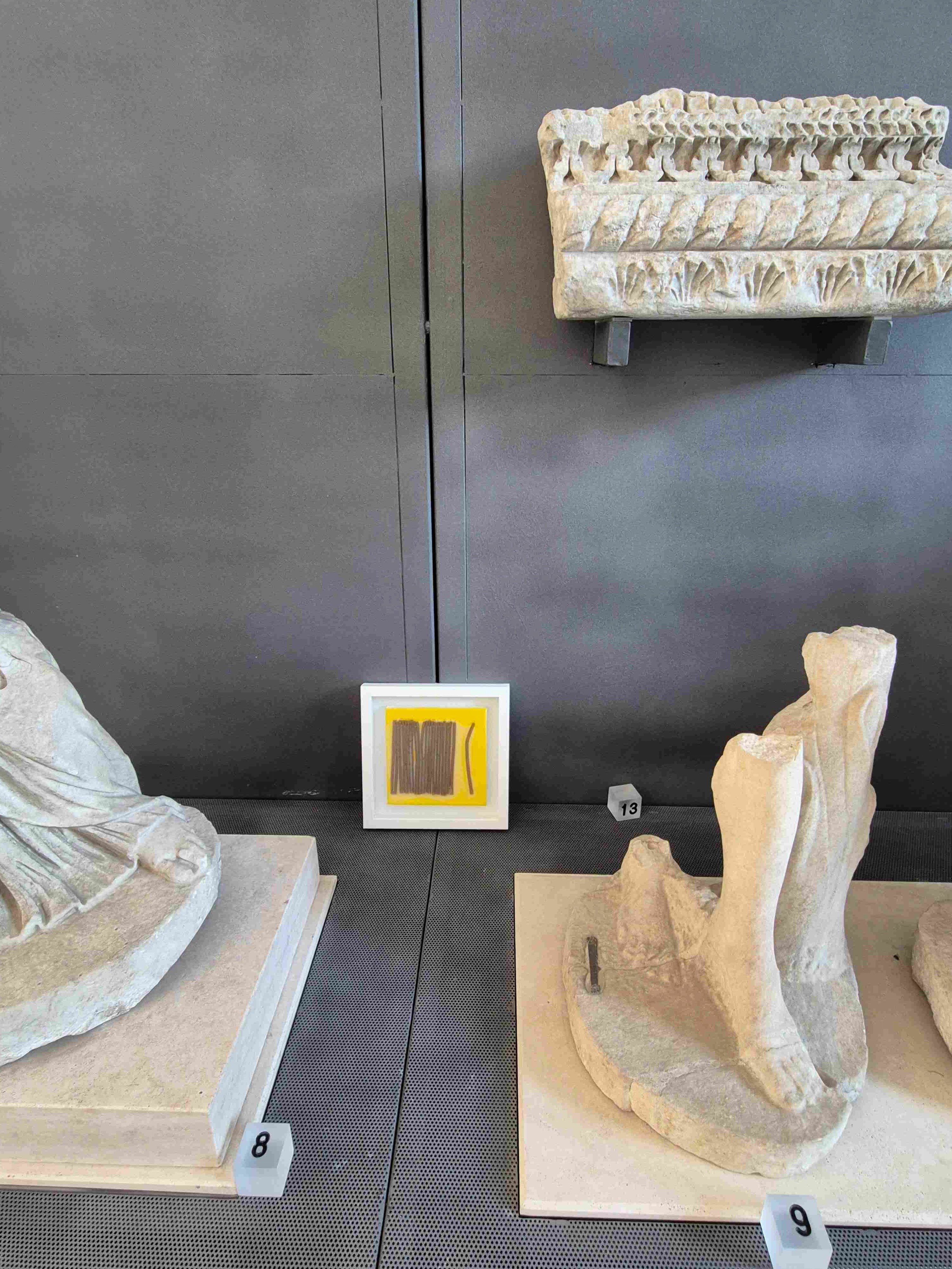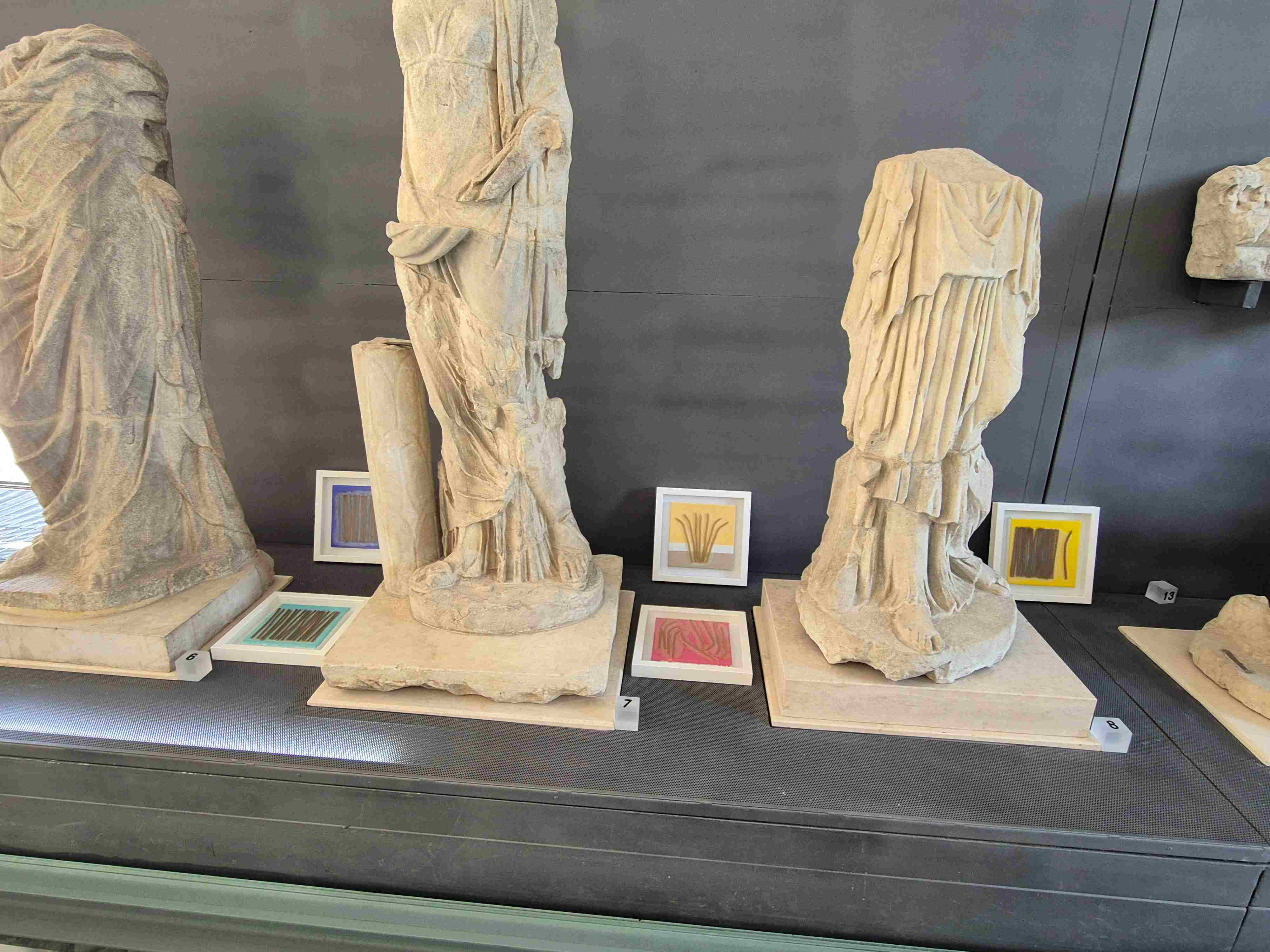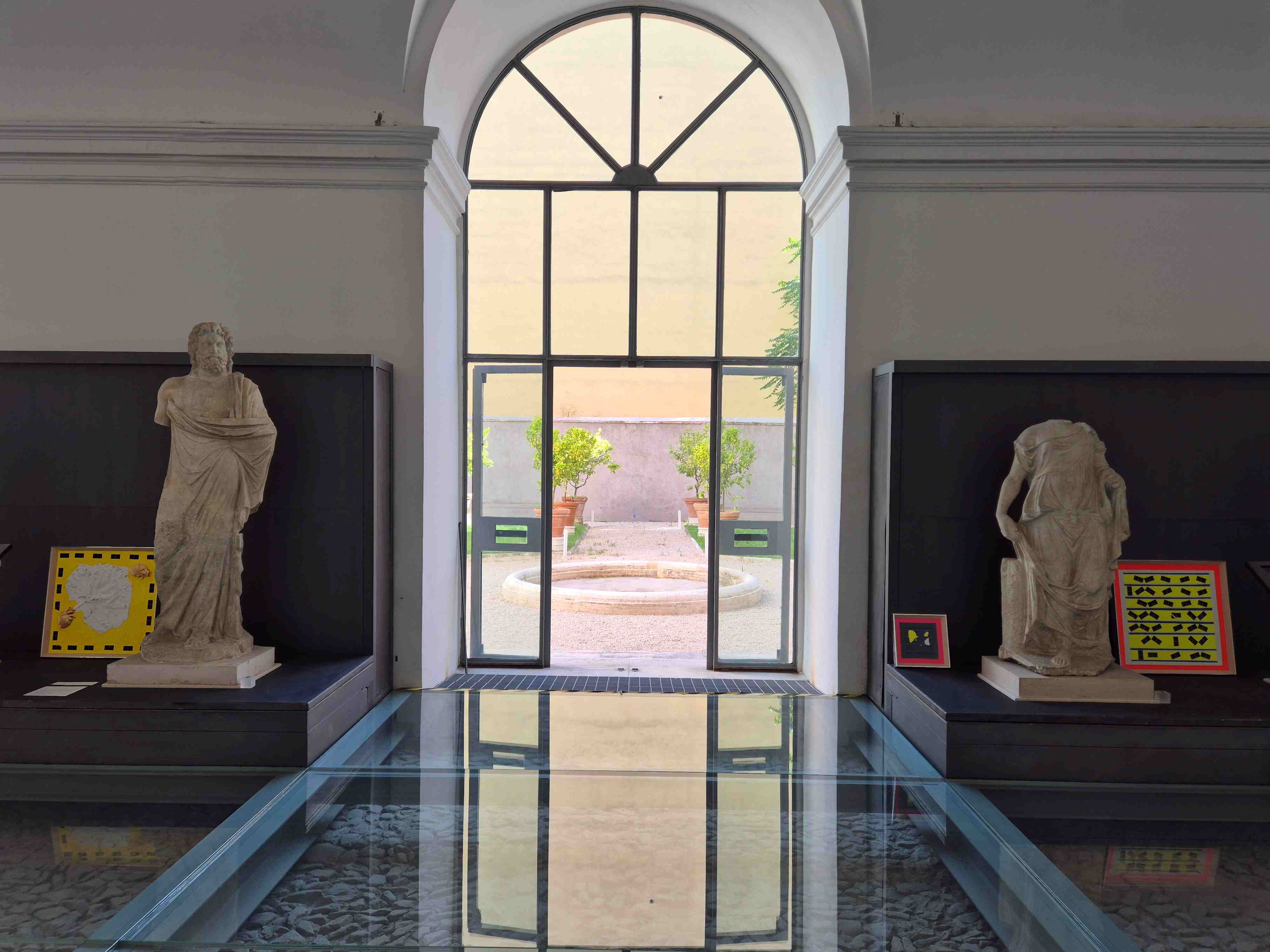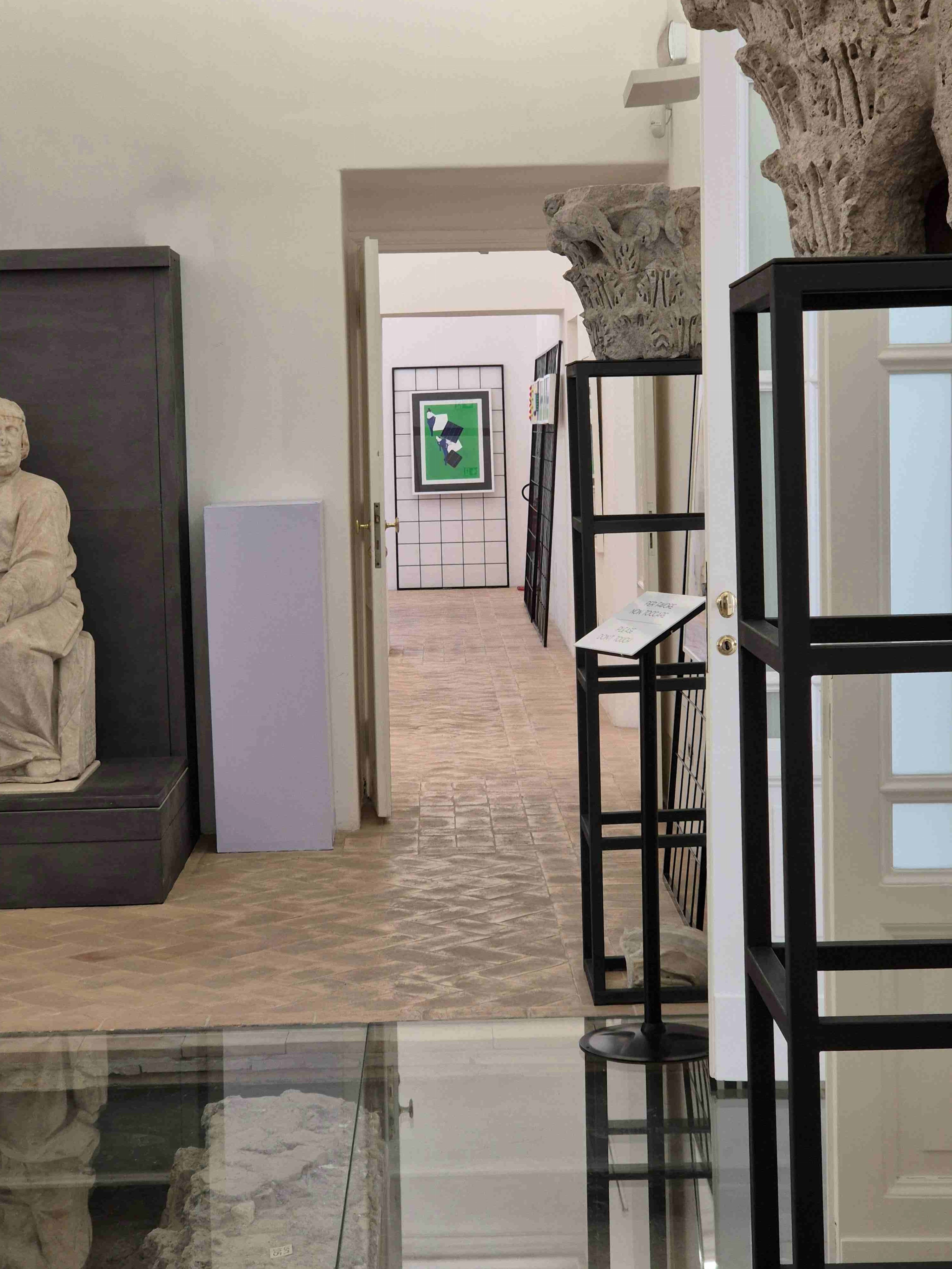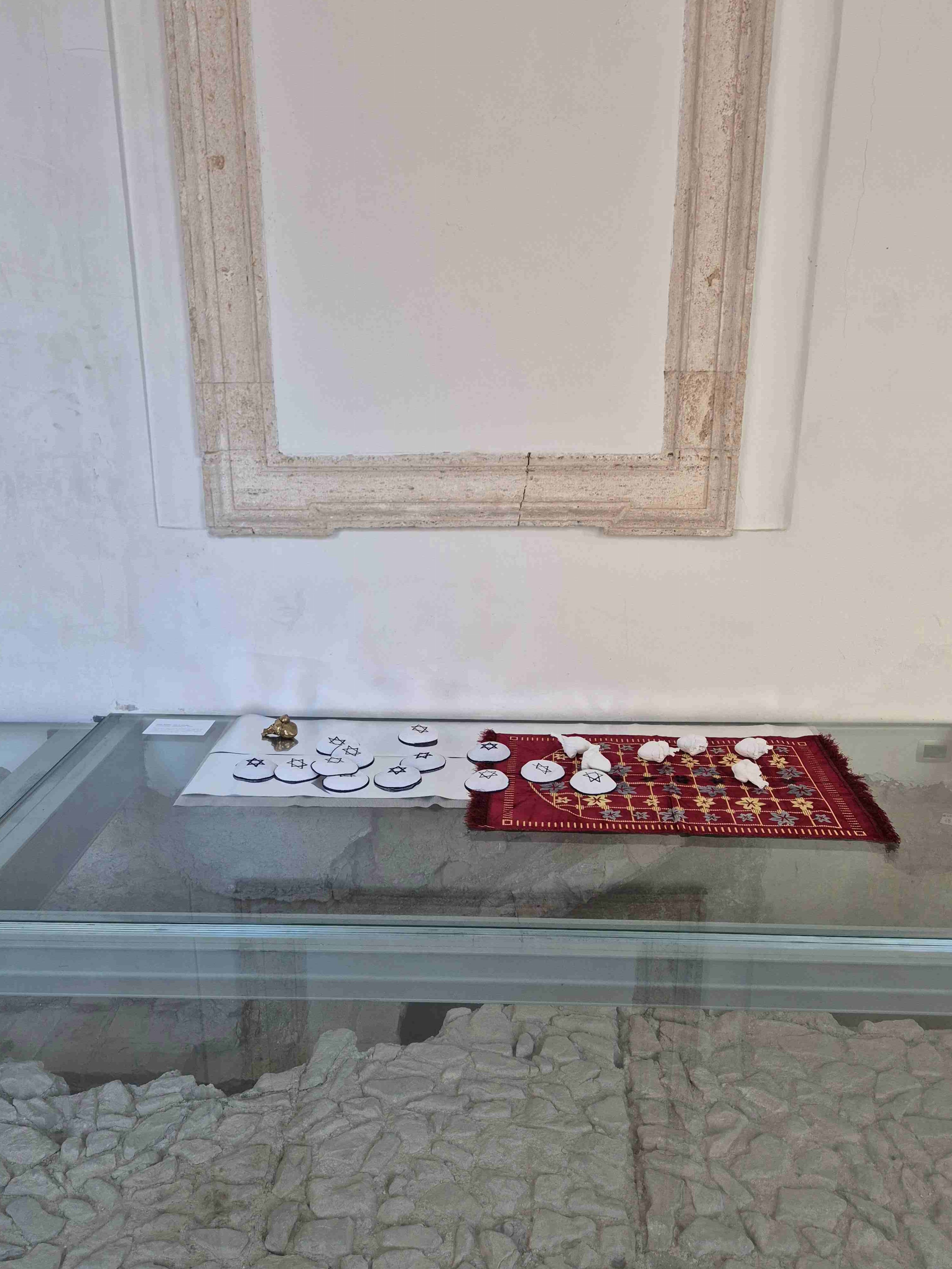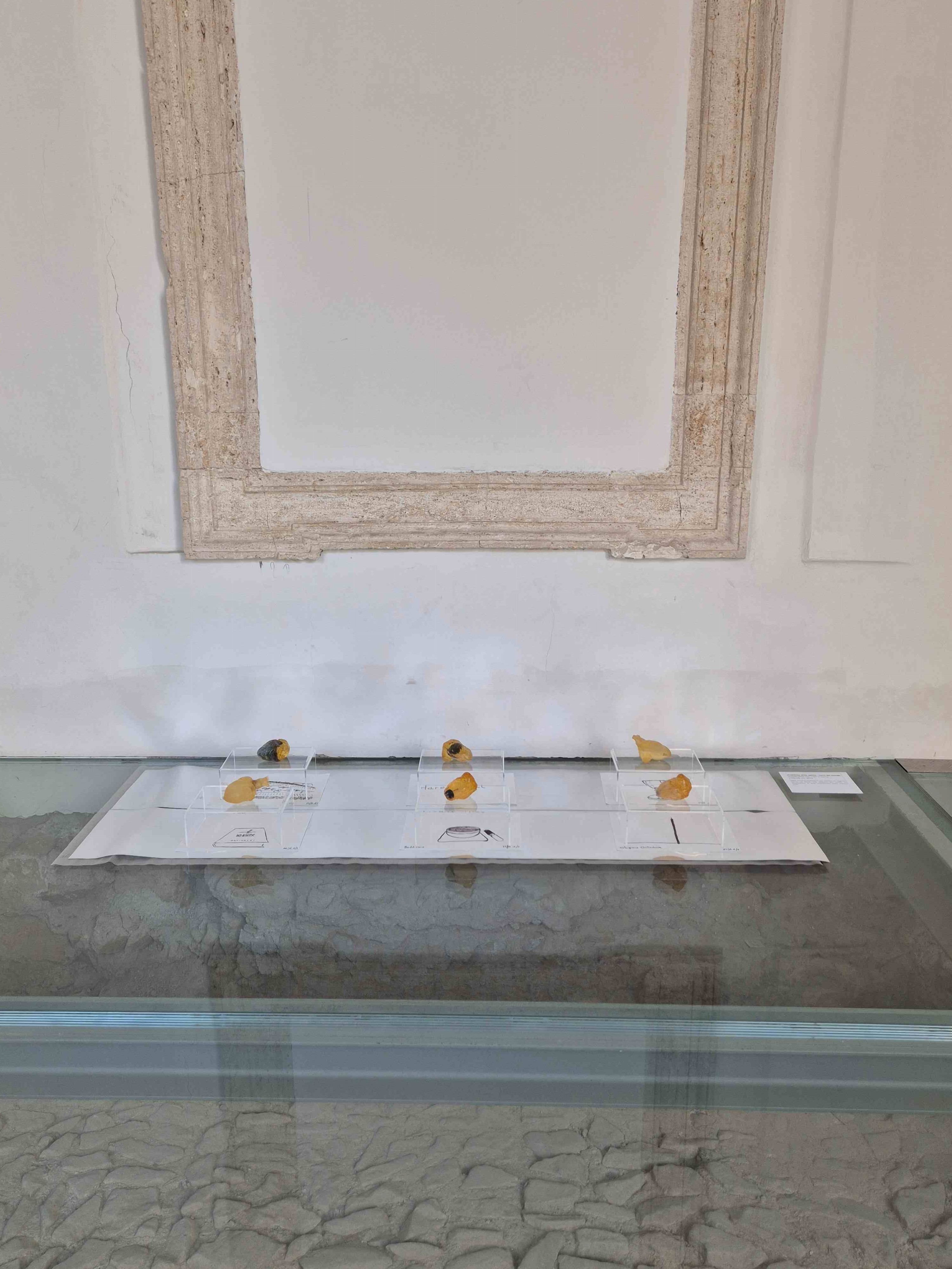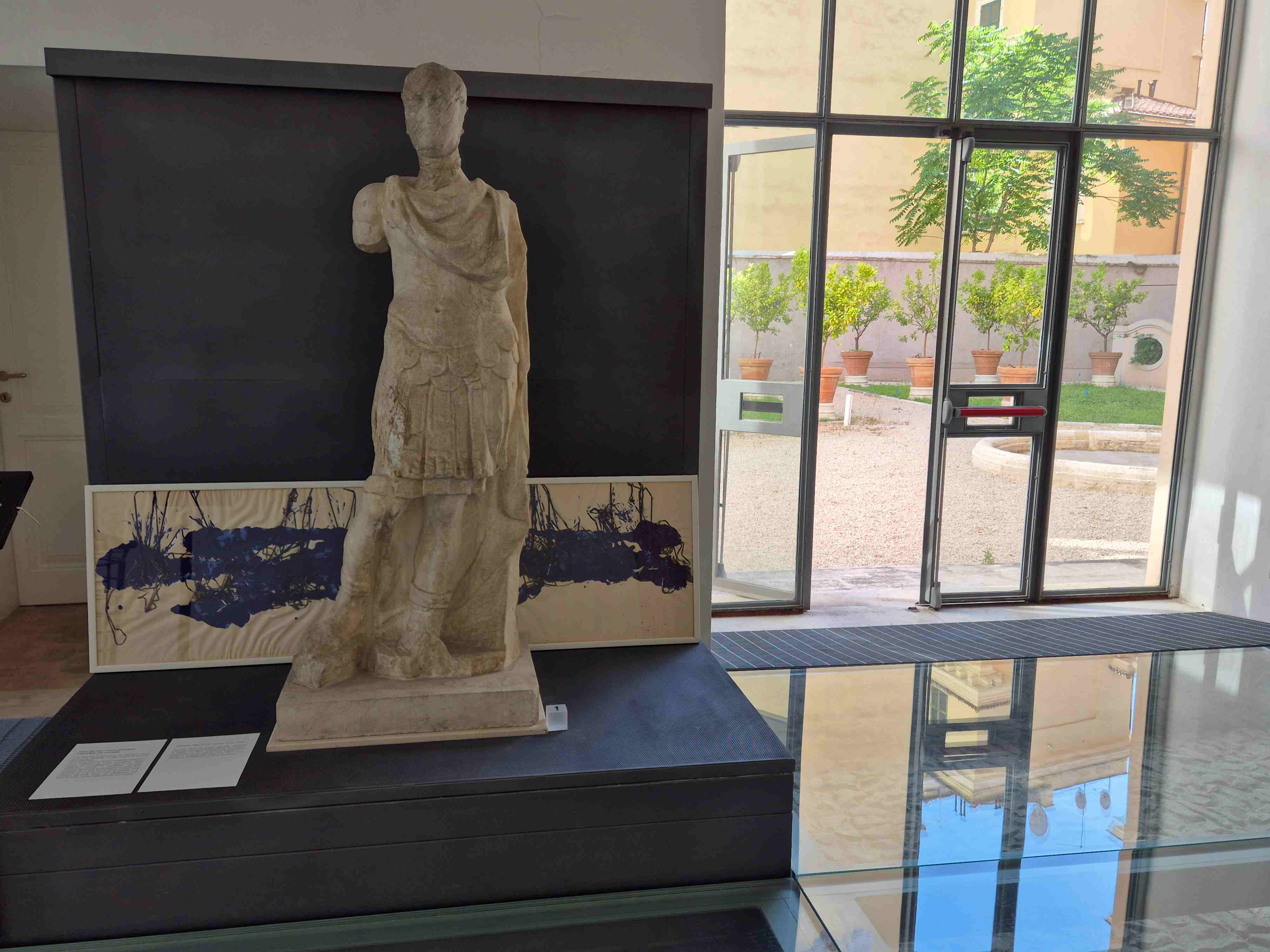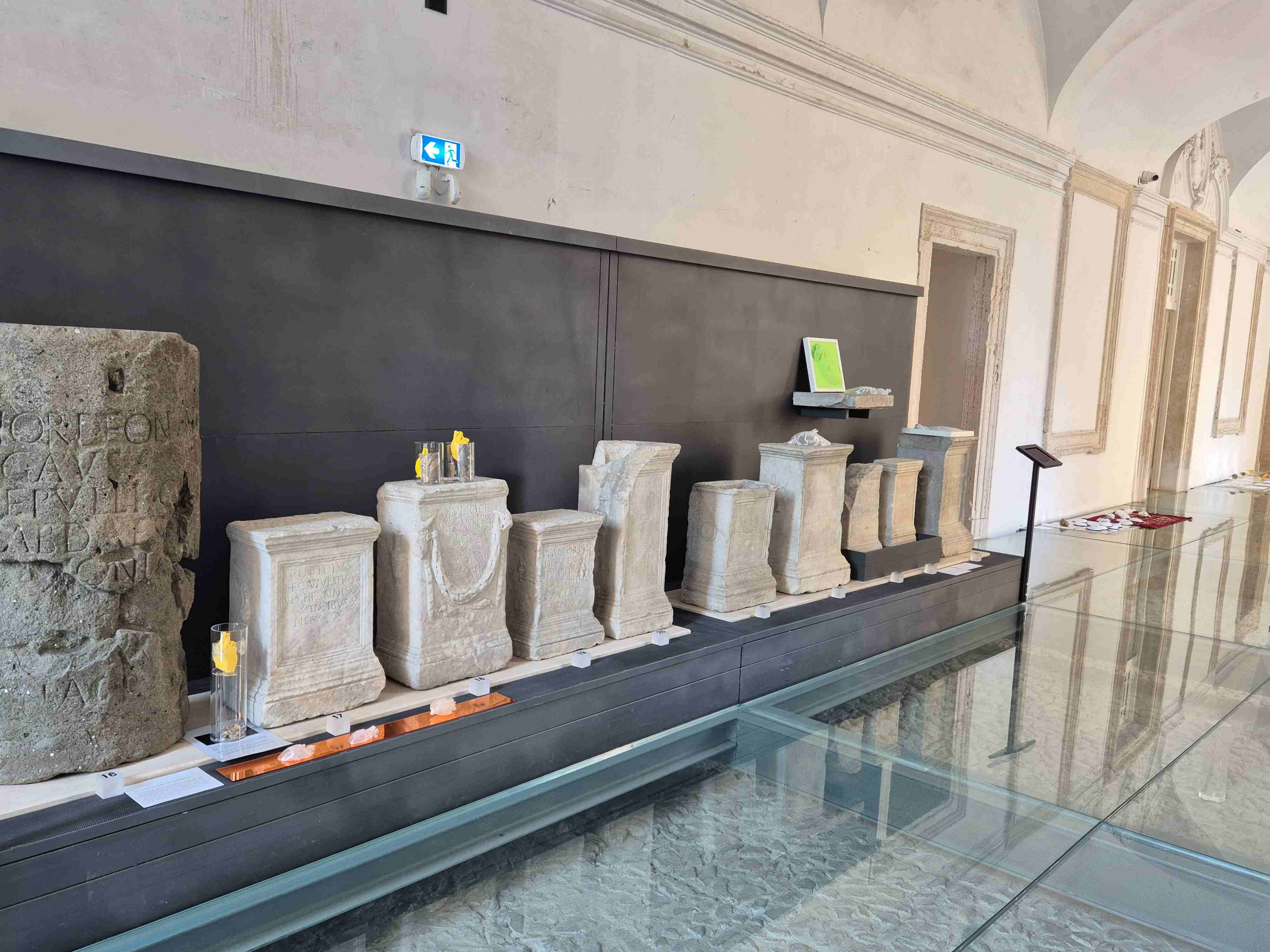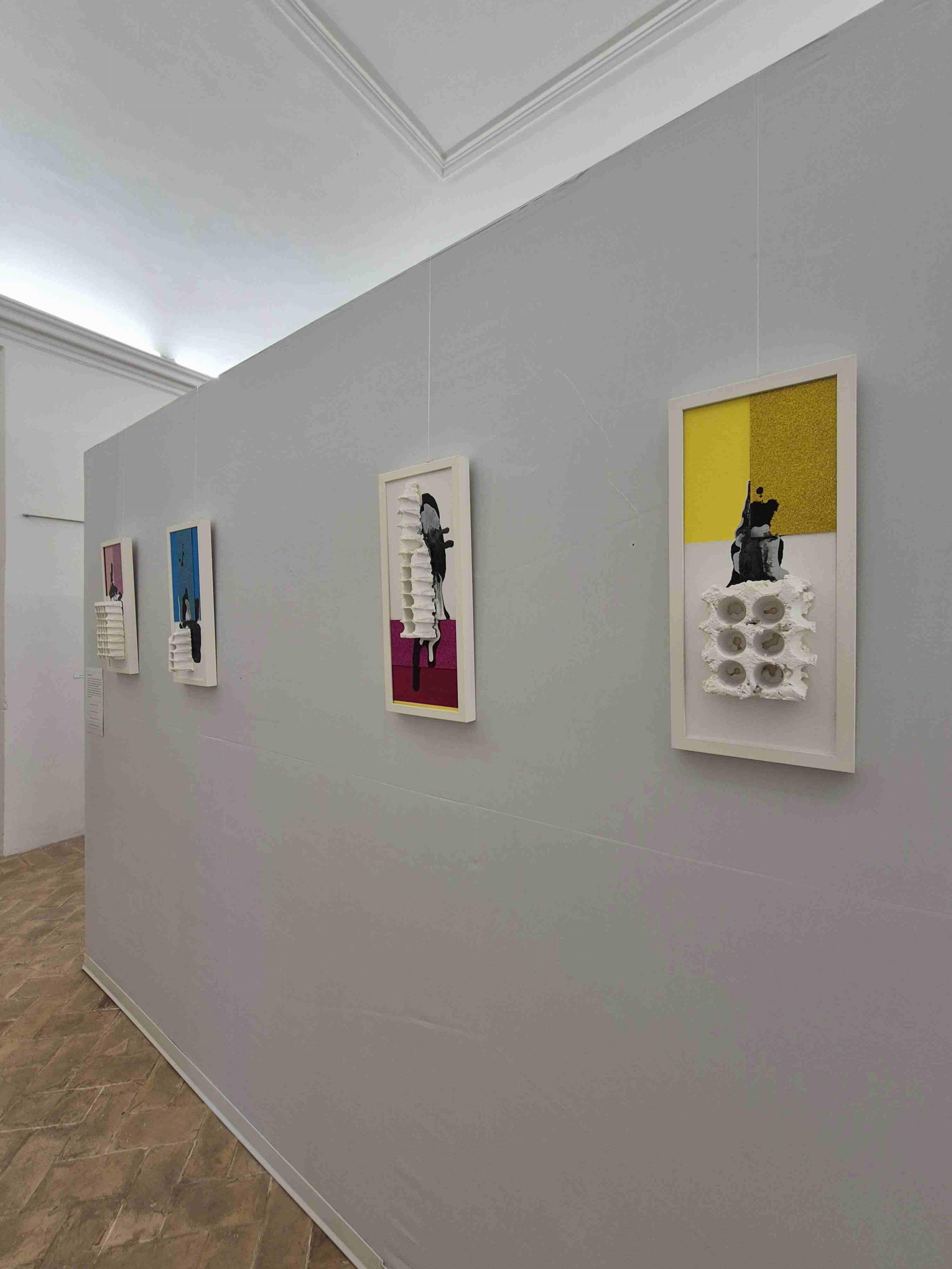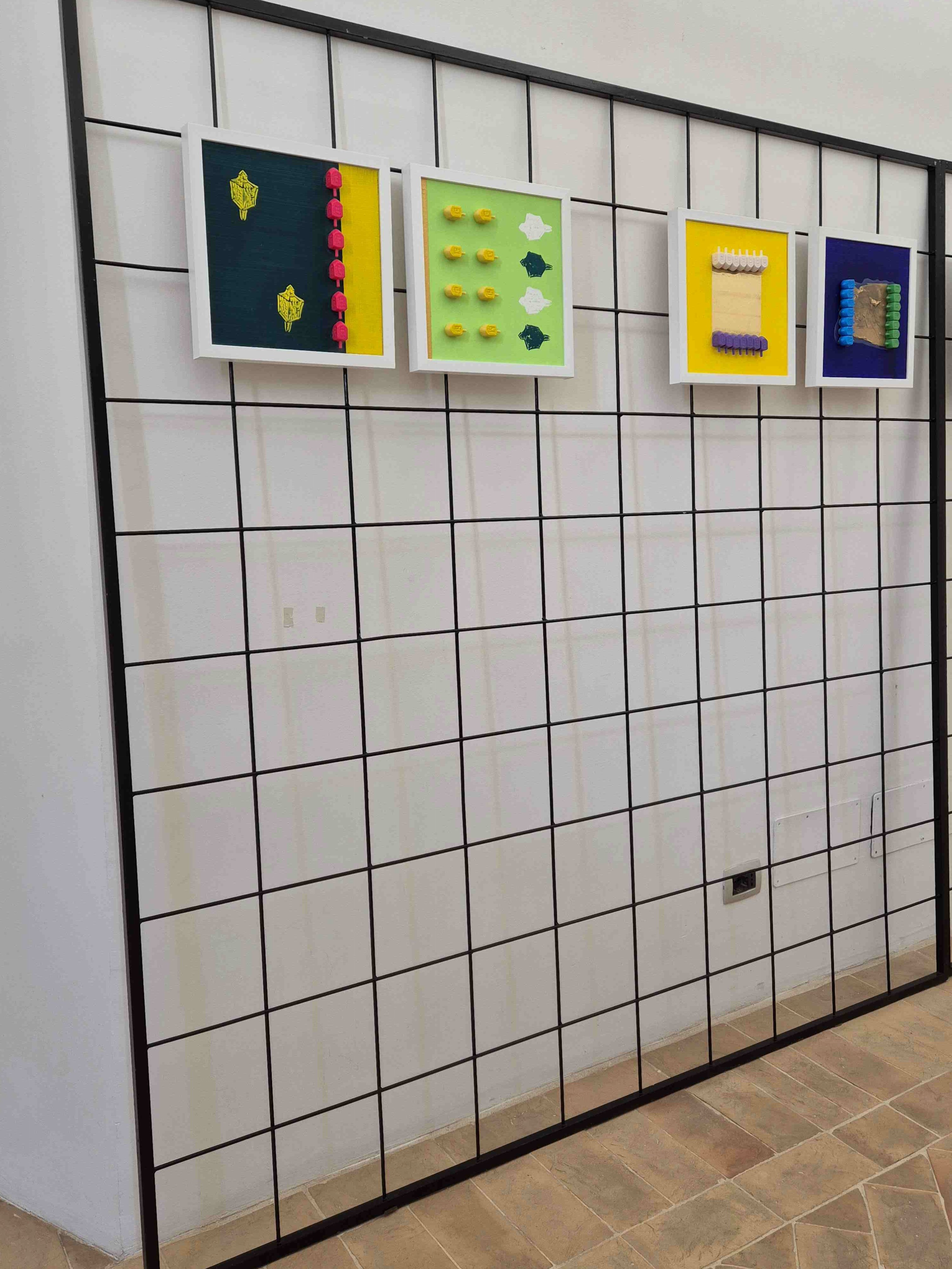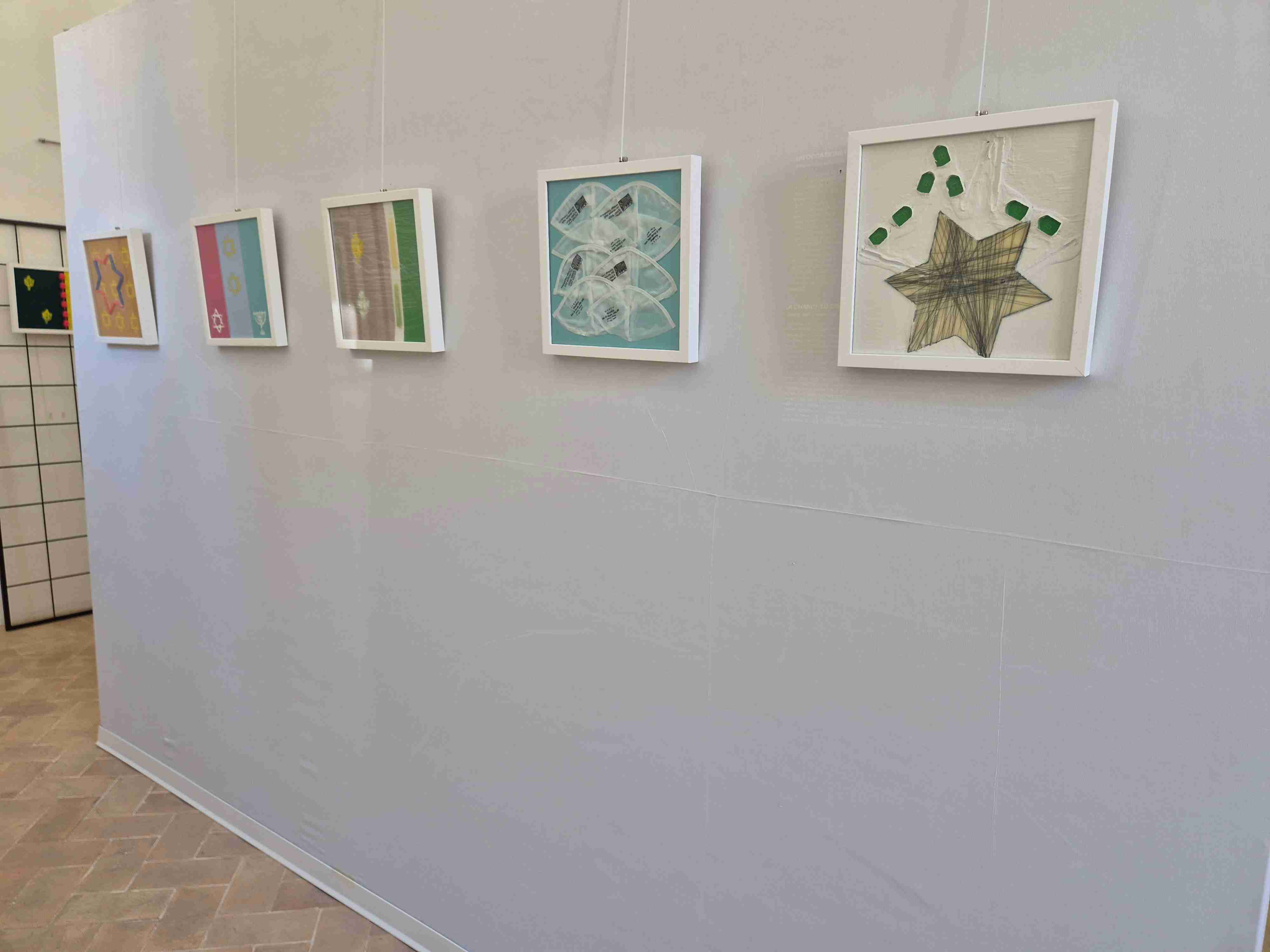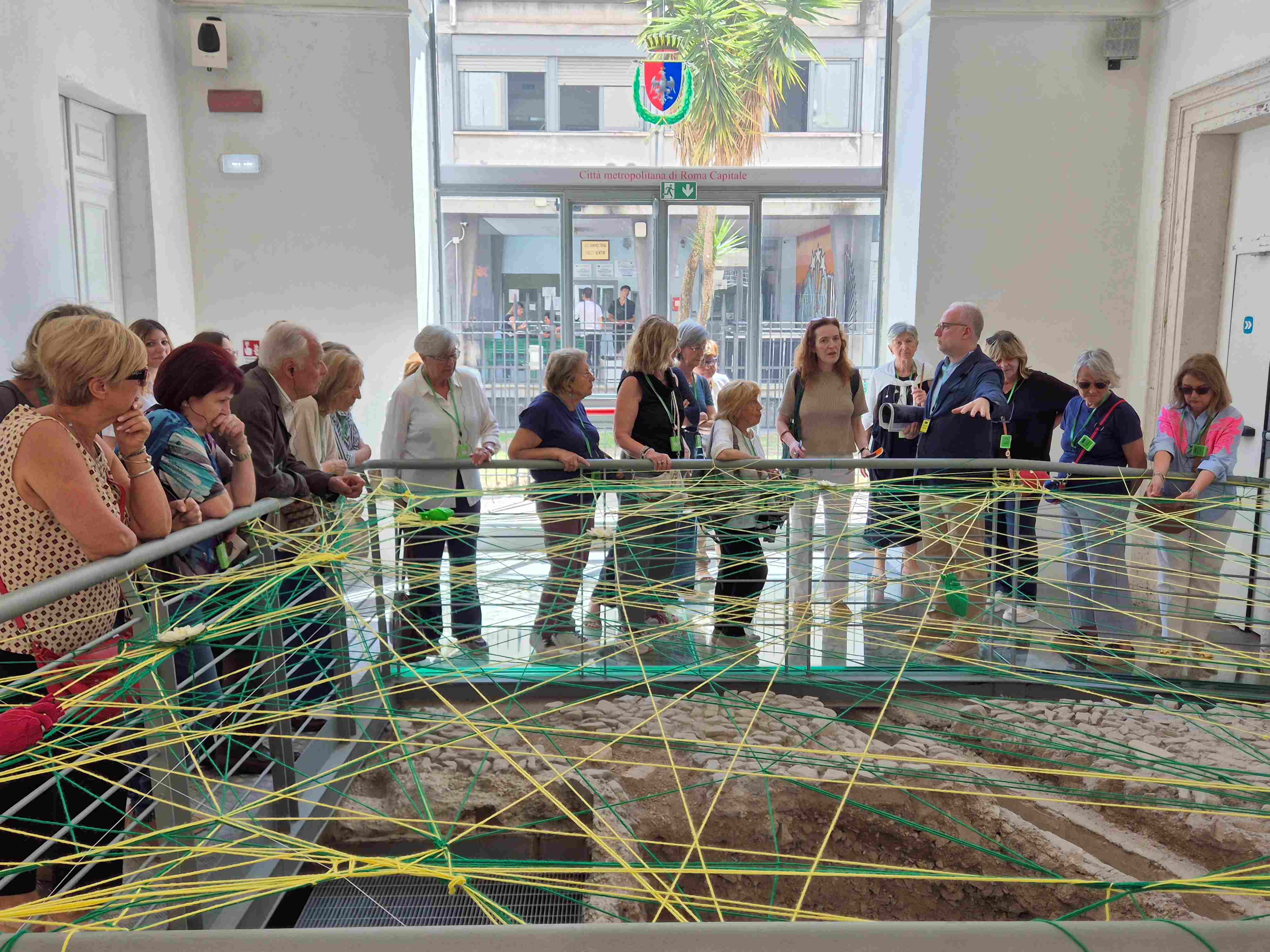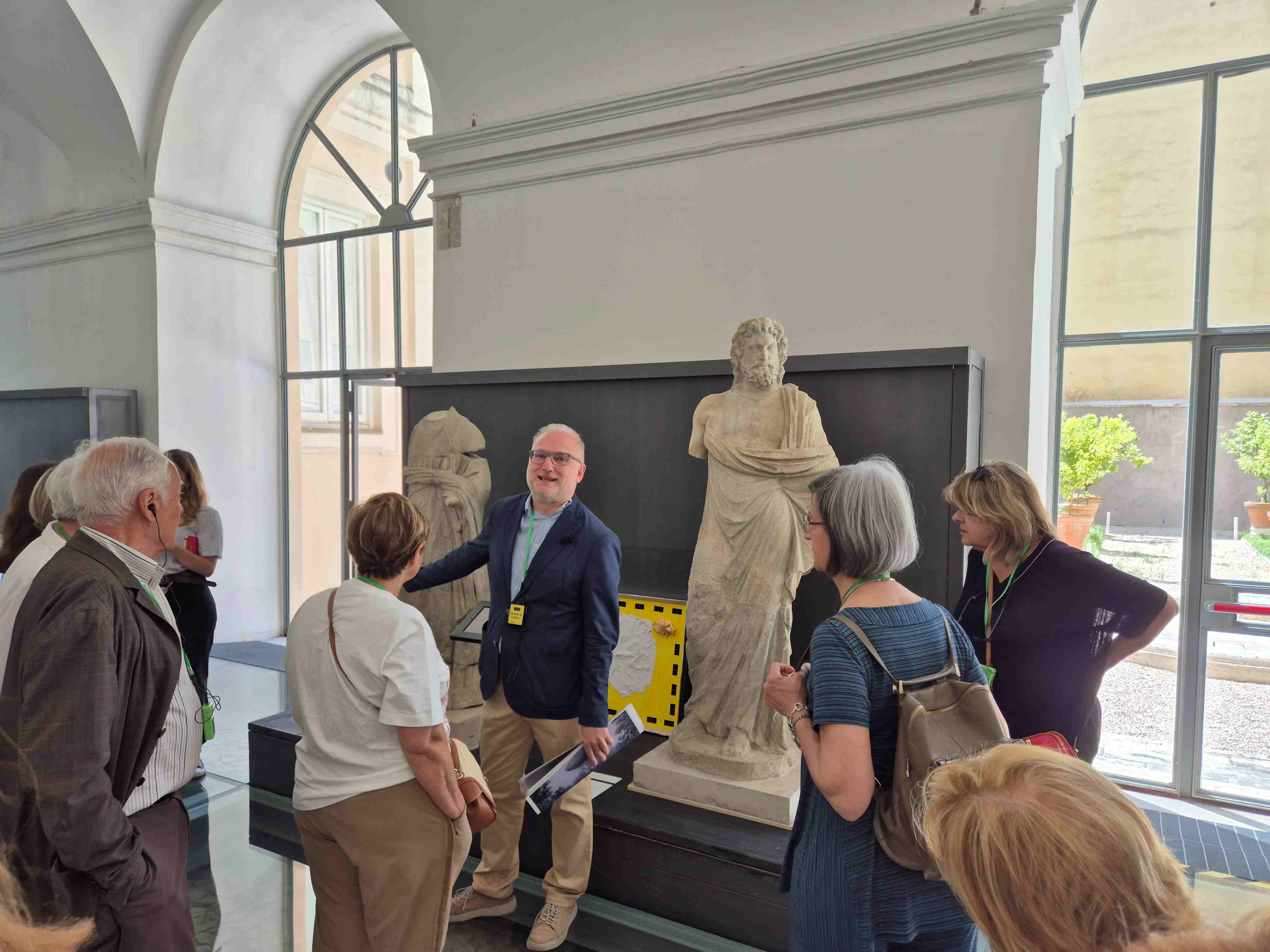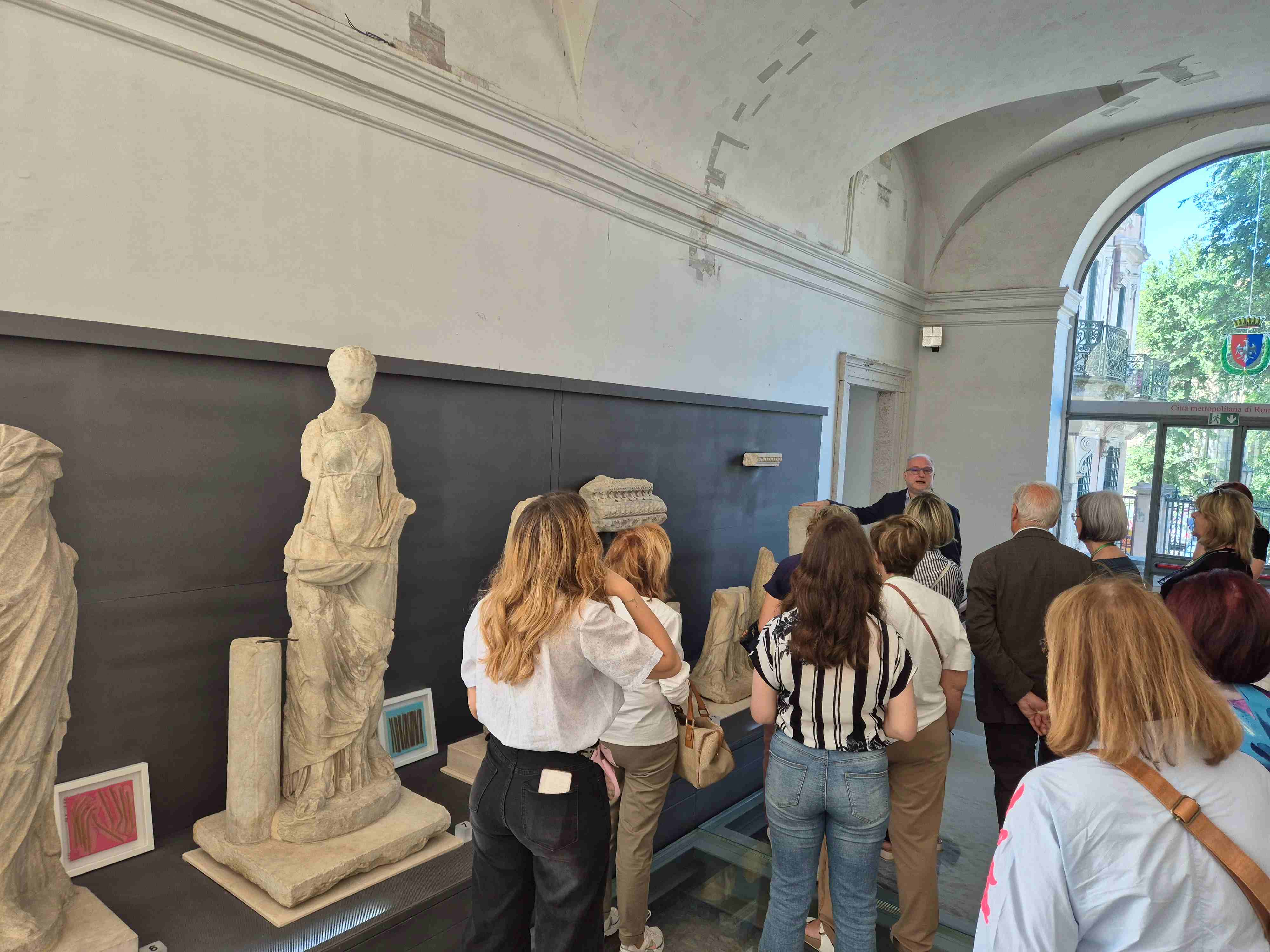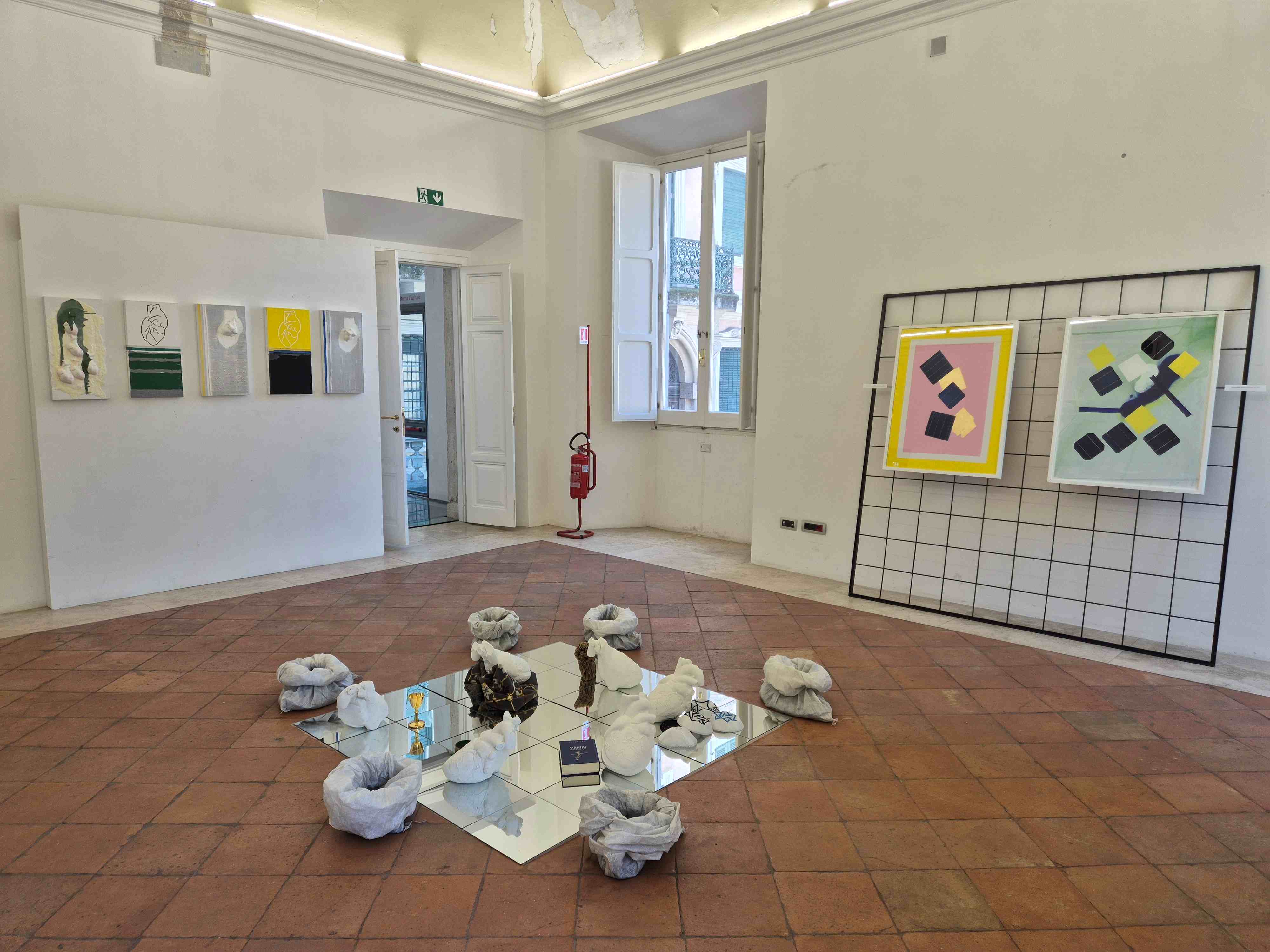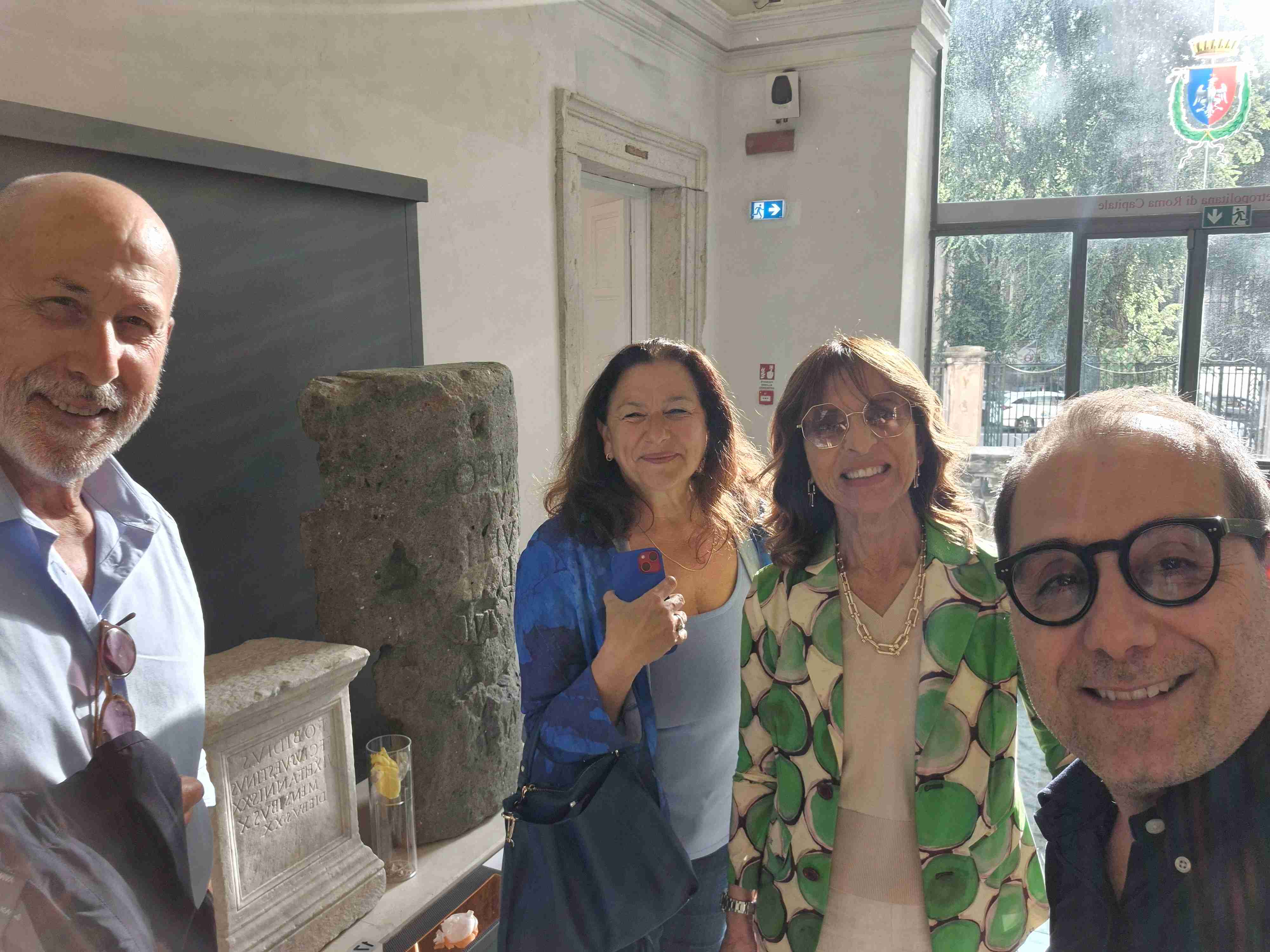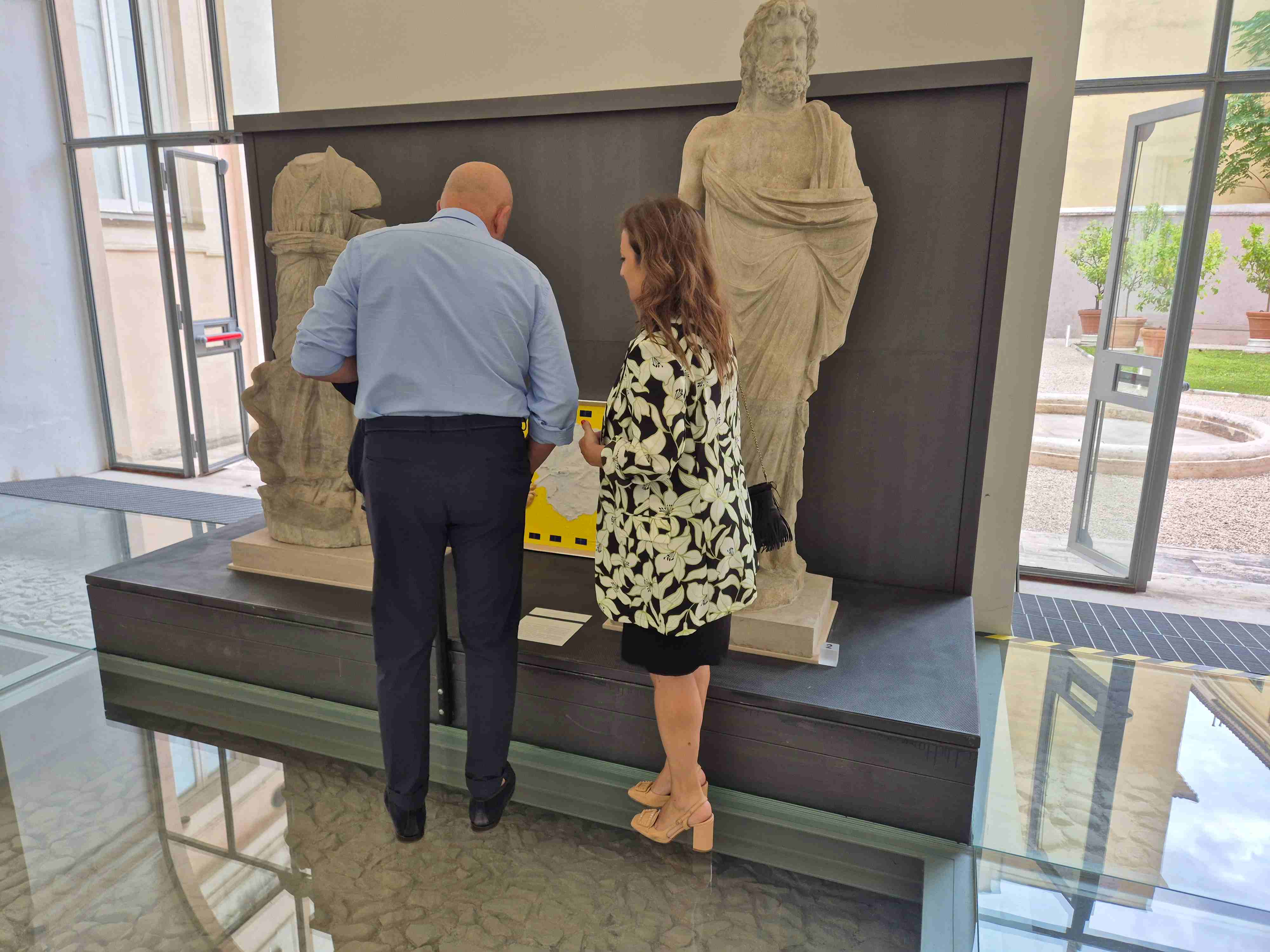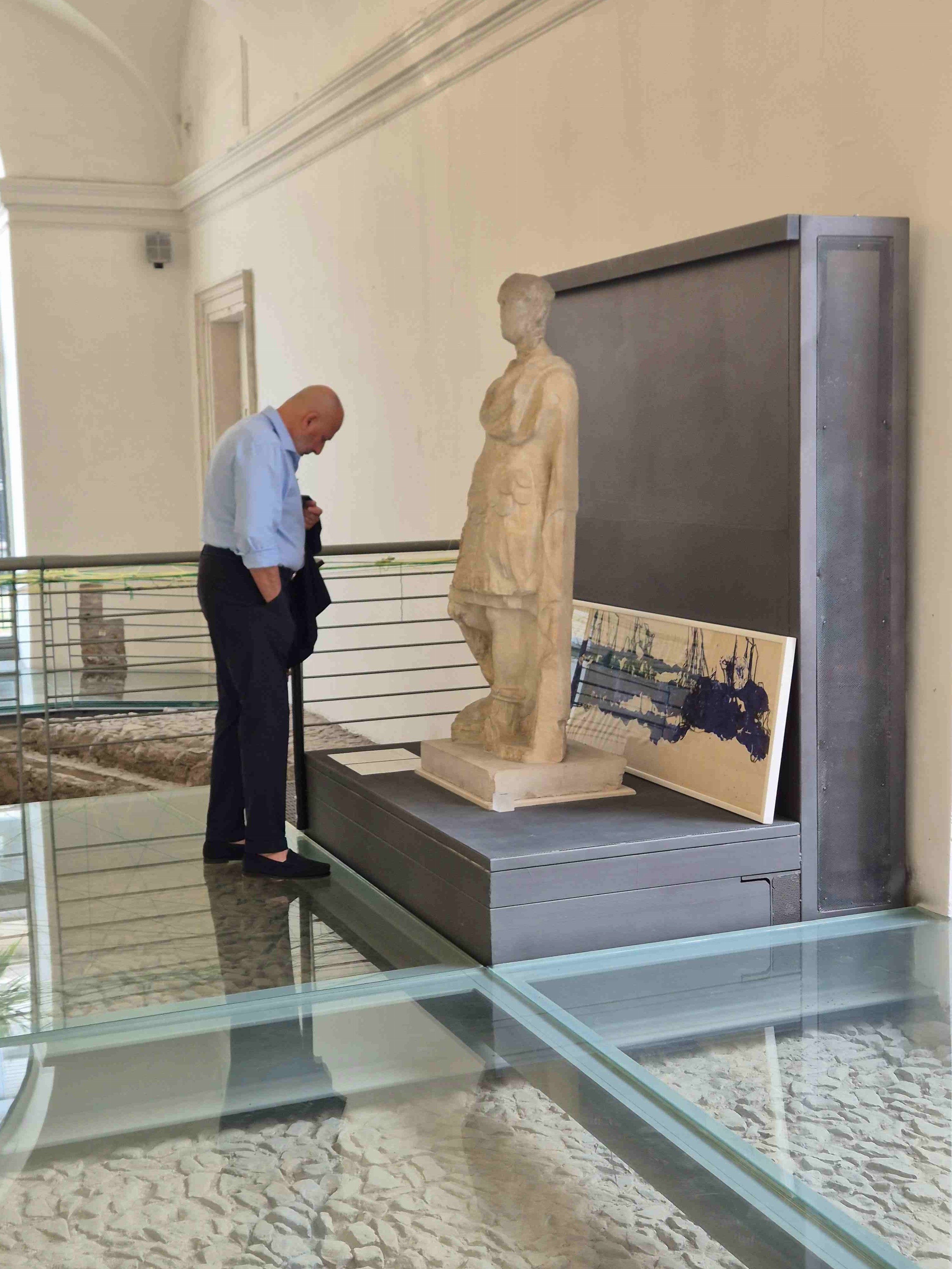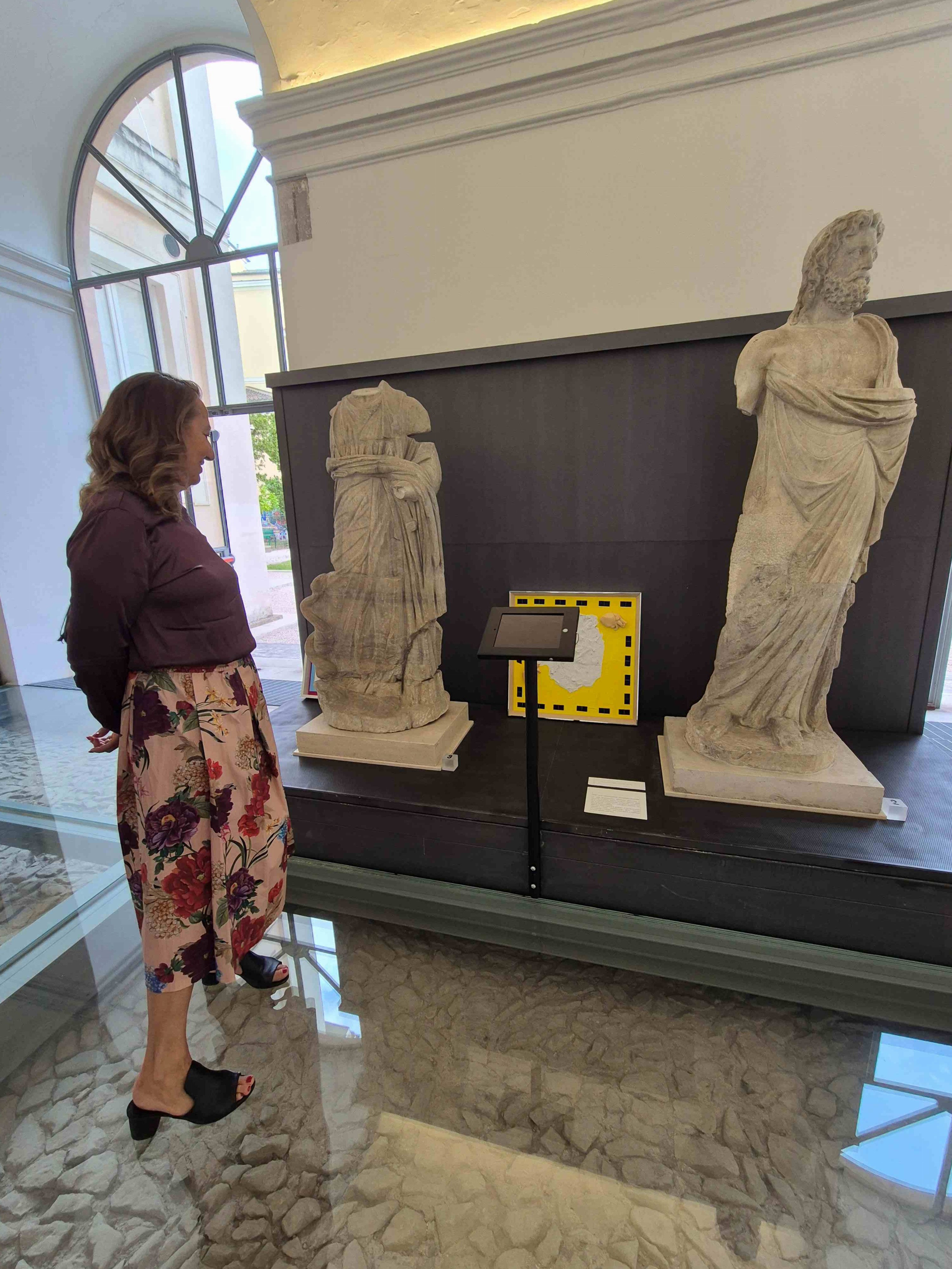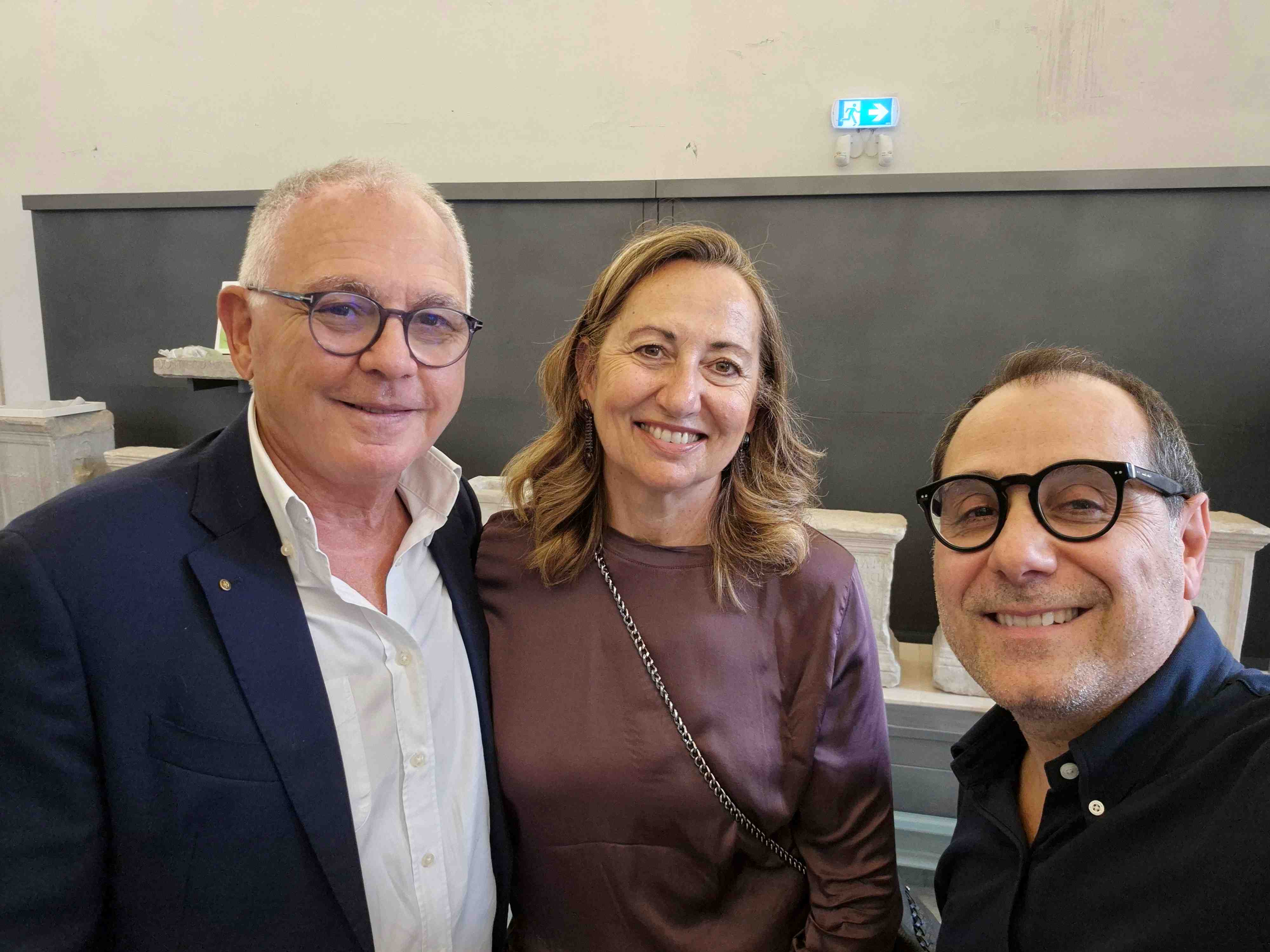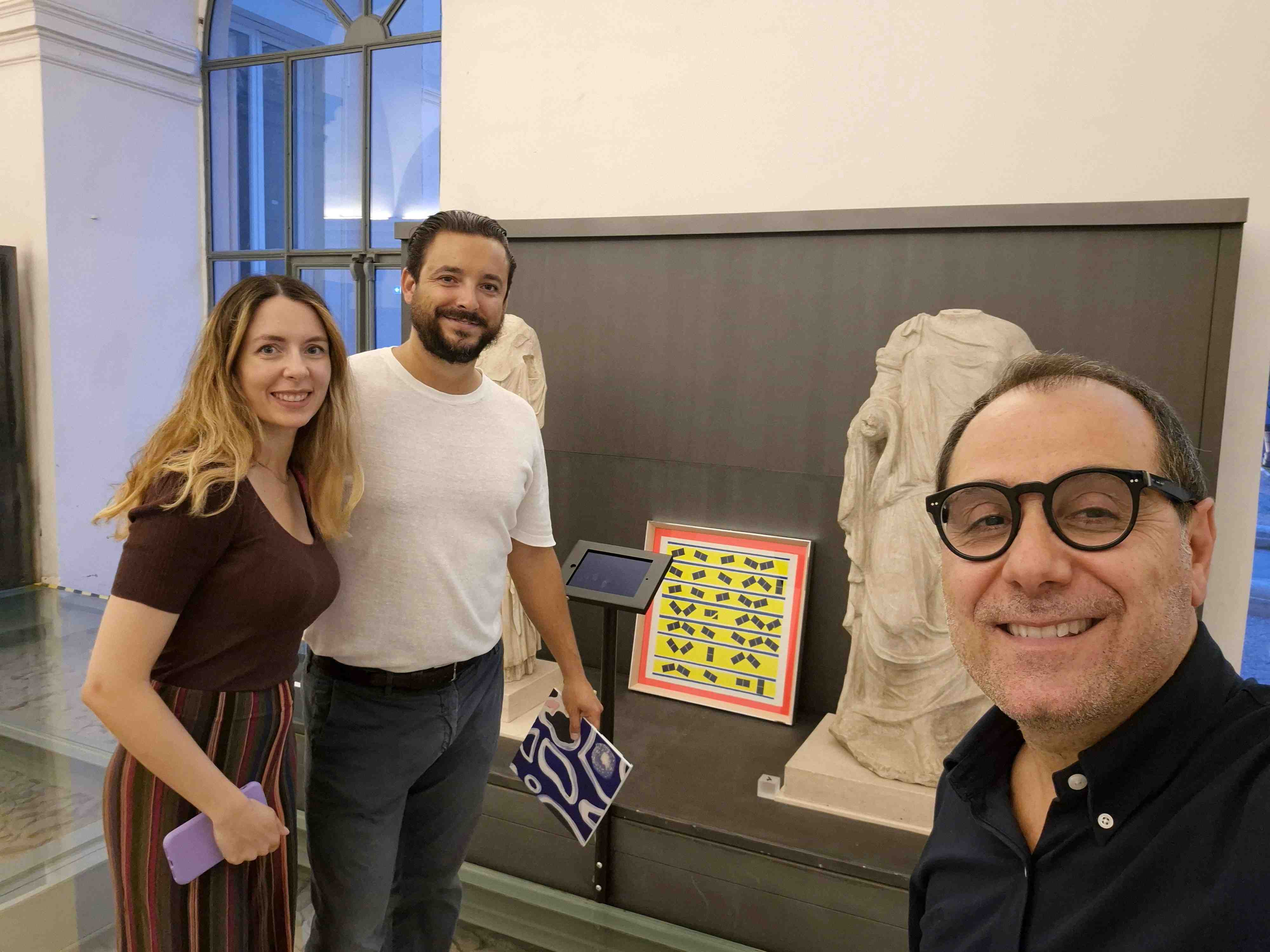
- 2025 – Giugno – Roma – Villa Altieri – SPAZIO DEL SACRO, ECOLOGIA INTEGRALE
- 2025 – March – Galleria Sleńdziński – Białystok
- 2025 – February – Palazzo Valentini – Roma
- 2024 – November – YAY Gallery – Baku
- 2024 – June – galeria test – Warsaw
- 2023 – November – The Others art fair – Turin
- 2023 – May – Festival del Tempo – Genova IT
- 2022 – November – Arte in Nuvola fair – Rome
- 2023 – March – Istituto Italiano di Cultura – Marsiglia
2025 – Giugno – Roma – Villa Altieri – SPAZIO DEL SACRO, ECOLOGIA INTEGRALE
https://format.asp.wroc.pl/index.php/2025/05/22/5826/
SPAZIO DEL SACRO, ECOLOGIA INTEGRALE
a cura di Fabrizio Pizzuto
inaugurazione 5 giugno 2025 ore 18
VILLA ALTIERI
PALAZZO DELLA CULTURA
E DELLA MEMORIA STORICA
Viale Manzoni 47, Roma
5-30 giugno 2025
ingresso libero
dal lunedì al giovedì 9:00 – 18:00; venerdì 9:00 – 14:00 sabato e domenica chiuso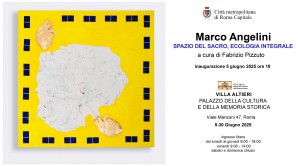
Giovedì 5 giugno 2025 alle ore 18 si inaugura negli spazi di Villa Altieri – Palazzo della Cultura e della Memoria Storica, la mostra personale Spazio del sacro, ecologia integrale di Marco Angelini a cura di Fabrizio Pizzuto (assistente curatore Irina Babayan), accompagnata dai testi critici di Claudio Noviello, Maria Laura Perilli, Jan Kozaczuk e con il patrocinio di Città Metropolitana di Roma Capitale.
La mostra presenta una visione non dogmatica e inclusiva del sacro – una visione che trascende i confini religiosi e invita al dialogo tra diverse tradizioni spirituali. Elementi provenienti dal Cattolicesimo, dall’Ebraismo, dall’Islam, dal Buddhismo e dall’Ortodossia appaiono all’interno delle opere, non come rappresentazioni statiche, ma come frammenti viventi di credenza, rituale e memoria culturale. Questi elementi sono spesso inglobati in materiali come resina, specchi, oggetti scartati e nastro magnetico, oppure posti in contrasto con essi, creando forme ibride che evocano insieme vulnerabilità e resilienza.
Come scrive Fabrizio Pizzuto << Le opere si reggono su un dualismo: uno sfondo pulsa, tiene memoria, una conversazione elenca elementi. Da questa conversazione si generano figure. (…) Dal tema delle religioni, affrontate come pensiero Angelini si muove lentamente ma non a caso. Nel ciclo più recente, questa tessitura prende corpo attraverso la presenza delle celle fotovoltaiche. Non sono simboli, non sono allegorie, a parer mio. Sono ancora materia che assorbe e trasforma. La cella prende la luce e la restituisce in forma di energia. Prendersi cura del mondo, infine, potrebbe essere questo: entrare nel ciclo della luce. Il gesto tecnico diventa gesto spirituale e diventa pensiero del bene. >>
W czwartek 5 czerwca 2025 roku o godzinie 18:00 w przestrzeniach Villa Altieri – Palazzo della Cultura e della Memoria Storica (Pałac Kultury i Pamięci Historycznej) w Rzymie zostanie otwarta wystawa indywidualna Marco Angeliniego zatytułowana Przestrzeń Sacrum, Ekologia Integralna (Spazio del Sacro, Ecologia Integrale), kuratorowana przez Fabrizio Pizzuto (asystentka kuratora: Irina Babayan), uzupełniona tekstami krytycznymi autorstwa Claudio Noviello, Marii Laury Perilli, Jana Kozaczuka. Patronem wystawy jest Città Metropolitana di Roma Capitale (Miasta Metropolitalnego Rzym – Stolica).
Wystawa prezentuje nienormatywną i inkluzywną wizję sacrum – wizję, która przekracza granice religijne i zaprasza do dialogu między różnymi tradycjami duchowymi. W dziełach pojawiają się elementy zaczerpnięte z katolicyzmu, judaizmu, islamu, buddyzmu i prawosławia – nie jako statyczne przedstawienia, lecz jako żywe fragmenty wiary, rytuału i pamięci kulturowej. Te elementy są często osadzane w takich materiałach jak żywica, lustra, wyrzucone przedmioty czy taśma magnetyczna, bądź zestawiane z nimi w kontrapunkcie, tworząc formy hybrydowe, które przywołują jednocześnie kruchość i siłę.
Jak pisze Fabrizio Pizzuto:
Dzieła opierają się na dualizmie: tło pulsuje, przechowuje pamięć, a rozmowa przywołuje elementy. Z tej rozmowy rodzą się figury. (…) Temat religii, potraktowany jako forma myślenia, Angelini podejmuje powoli, lecz z pełną świadomością. W najnowszym cyklu ta tkanka nabiera ciała poprzez obecność ogniw fotowoltaicznych. Moim zdaniem nie są to symbole ani alegorie. To nadal materia – taka, która pochłania i przekształca. Ogniwo przyjmuje światło i oddaje je w postaci energii. Troska o świat mogłaby więc oznaczać właśnie to: wejście w cykl światła. Gest techniczny staje się gestem duchowym i przekształca się w myśl o dobru.
Marco Angelini
PRZESTRZEŃ SACRUM, EKOLOGIA INTEGRALNA/ SPAZIO DEL SACRO, ECOLOGIA INTEGRALE
Kurator: Fabrizio Pizzuto
5.06–30.06.2025
Villa Altieri – Palazzo della Cultura e della Memoria Storica (Pałac Kultury i Pamięci Historycznej)
Viale Manzoni 47 – Rzym
Marco Angelini
SACRED SPACE, INTEGRAL ECOLOGY
Curated by Fabrizio Pizzuto (Assistant Curator: Irina Babayan)
Critical texts by Claudio Noviello, Maria Laura Perilli, Jan Kozaczuk
Opening: June 5, 2025 at 6:00 p.m.
Villa Altieri – Palace of Culture and Historical Memory
Viale Manzoni 47 – Rome
Exhibition dates: June 5–30, 2025
On Thursday, June 5, 2025 at 6:00 p.m., the solo exhibition Sacred Space, Integral Ecology by Marco Angelini will open at Villa Altieri – Palace of Culture and Historical Memory. Curated by Fabrizio Pizzuto (assistant curator Irina Babayan), the exhibition features critical texts by Claudio Noviello, Maria Laura Perilli, and Jan Kozaczuk, and is held under the patronage of the Metropolitan City of Rome Capital.
The exhibition offers a non-dogmatic and inclusive interpretation of the sacred—one that transcends religious boundaries and encourages dialogue among diverse spiritual traditions. Elements from Catholicism, Judaism, Islam, Buddhism, and Orthodoxy appear throughout Angelini’s works not as fixed representations, but as living fragments of faith, ritual, and cultural memory. These elements are often integrated into materials such as resin, mirrors, discarded objects, and magnetic tape—or placed in contrast with them—creating hybrid forms that evoke both vulnerability and resilience.
As Fabrizio Pizzuto writes:
“The works are built on a dualism: a background that pulsates, that holds memory; a conversation that enumerates elements. From this conversation, figures emerge. (…)
Angelini approaches the theme of religion as thought—slowly, but not by chance.
In his most recent cycle, this texture takes shape through the presence of photovoltaic cells.
They are not symbols or allegories, in my view. They are matter—still—capable of absorbing and transforming.
The cell receives light and returns it as energy. Perhaps caring for the world could ultimately mean this: entering the cycle of light.
The technical gesture becomes a spiritual gesture and, in turn, becomes a thought of goodness.”
Marco Angelini was born in Rome in 1971. He lives and works between Rome and Warsaw.
A graduate in Sociology, he studies urban phenomena and explores the cultures and subcultures that emerge in the world’s metropolises. For Angelini, cities are the backdrop where unconscious impulses interact with the new possibilities offered by technology; they become, therefore, the nucleus and natural habitat of all human paradoxes and contradictions.
His research addresses a range of themes: nature and technology, time and memory, interreligious dialogue, the dimension of the sacred, art and science, energy and sustainability.
The abstract form becomes the ideal vehicle for his fluid, ever-changing poetics, suggesting the presence of multiple realities.
He firmly believes in the social role of art—its ability to generate awareness and thereby open up new spaces for sharing, communication, and reflection.
Marco Angelini’s works are included in several public and private collections, among them the Fondazione Roma (Museo del Corso) and the Sleńdziński Gallery in Białystok.
Notable exhibitions include:
- participation in the 54th Venice Biennale (2011);
- solo exhibitions at Galleria XX1, Warsaw (2011);
- Museo Carlo Bilotti, Rome, curated by Raffaella Salato (2015);
- Dom Kultury 13muz / 11. MFSW inSPIRACJE / Oksydan, Szczecin (2016);
- Museion, Bolzano (2017);
- Museo Laboratorio di Arte Contemporanea, Sapienza University of Rome, curated by Raffaella Salato (2018);
- Bastion 23 – Palais des Raïs, Algiers, for the 15th Giornata del Contemporaneo (2019);
- Italian Cultural Institute, Santiago de Chile, curated by Raffaele Gavarro (2022);
- Industrial Heritage Museum, Bologna (2022);
- Italian Cultural Institute, Marseille (2023);
- Test Gallery, Warsaw (Mazowiecki Instytut Kultury), curated by Jan Kozaczuk (2024);
- YAY Gallery, Baku, organized by the Italian Embassy for the 29th UN Climate Conference (COP29), curated by Jan Kozaczuk (2024);
- Sala della Pace, Palazzo Valentini, Rome, curated by Maria Laura Perilli (2025);
- Sleńdziński Gallery, Białystok, curated by Jan Kozaczuk (2025).
INFO
Marco Angelini
SACRED SPACE, INTEGRAL ECOLOGY
Curated by Fabrizio Pizzuto (Assistant Curator: Irina Babayan)
Critical texts by Claudio Noviello, Maria Laura Perilli, Jan Kozaczuk
With the patronage of the Metropolitan City of Rome Capital
Venue:Villa Altieri – Palace of Culture and Historical Memory
Address: Viale Manzoni 47 – Rome
Exhibition dates: June 5–30, 2025
Admission: Free
Opening hours: Monday to Thursday: 9:00 a.m. – 6:00 p.m.; Friday: 9:00 a.m. – 2:00 p.m.; Closed Saturday and Sunday
